Saturday, December 18 2021
This month's Round Robin Blog asks the question: How do your family experiences translate into writing scenes?
XX
 Unless you’re an orphan, the family you grew up with is bound to find its way into your writing unless your protagonist is another Jack Reacher, but even he had family that after several successful books suddenly started appearing in the later tales. For that matter, anyone who’s unlucky enough to be an orphan would have foster family experiences to color their view, either good or bad. So, it’s safe to say that for all authors, family has to influence their writing to some degree. Unless you’re an orphan, the family you grew up with is bound to find its way into your writing unless your protagonist is another Jack Reacher, but even he had family that after several successful books suddenly started appearing in the later tales. For that matter, anyone who’s unlucky enough to be an orphan would have foster family experiences to color their view, either good or bad. So, it’s safe to say that for all authors, family has to influence their writing to some degree.
XX
 For those who grew up with no family or a very dysfunctional one, there is likely to be negative family influence, or sadness that everyone else has family but your character does not. But for most of us, there will be our experiences with both parents and siblings that color the way we look at the world. Family adds a haven for most, where your character can go to for shelter and support. For others, it might be always being compared unfavorably to a sibling, or held to unattainable standards. The social strata a writer grew up in is another thing that can influence their writing: from the uber wealthy or the gutter poor. The way a character approaches the world and the challenges it presents will be different for those who never experienced hunger than those who bore the indignity of school lunches paid by charity or government funds. Having siblings or not is another sure influence in a writer’s way of getting things done. For those who grew up with no family or a very dysfunctional one, there is likely to be negative family influence, or sadness that everyone else has family but your character does not. But for most of us, there will be our experiences with both parents and siblings that color the way we look at the world. Family adds a haven for most, where your character can go to for shelter and support. For others, it might be always being compared unfavorably to a sibling, or held to unattainable standards. The social strata a writer grew up in is another thing that can influence their writing: from the uber wealthy or the gutter poor. The way a character approaches the world and the challenges it presents will be different for those who never experienced hunger than those who bore the indignity of school lunches paid by charity or government funds. Having siblings or not is another sure influence in a writer’s way of getting things done.
XX
 Leave It To Beaver pretty much mirrors how I grew up: a dad who went off to work every day and a mother who didn’t. Middle class parents who were diligent about saving for their future and their kids futures, paying the mortgage and bills on time, making sure my siblings and I were well fed and clothed. And always keeping track of who we hung out with, our school work and also attended any sports or other activities we participated in. While my parents cared for us, they didn’t coddle us either. We were expected to take responsibility for our schoolwork and chores and if we made poor choices or engaged in dangerous or unacceptable activities we had to accept the bad that came with them, and do whatever was in our power to fix things ourselves before our parents stepped in. But some writers had alcoholic parents, or missing parents. Some had no siblings, or they had abusive ones. Leave It To Beaver pretty much mirrors how I grew up: a dad who went off to work every day and a mother who didn’t. Middle class parents who were diligent about saving for their future and their kids futures, paying the mortgage and bills on time, making sure my siblings and I were well fed and clothed. And always keeping track of who we hung out with, our school work and also attended any sports or other activities we participated in. While my parents cared for us, they didn’t coddle us either. We were expected to take responsibility for our schoolwork and chores and if we made poor choices or engaged in dangerous or unacceptable activities we had to accept the bad that came with them, and do whatever was in our power to fix things ourselves before our parents stepped in. But some writers had alcoholic parents, or missing parents. Some had no siblings, or they had abusive ones.  Being the oldest is different from being the youngest or middle child. And some had closer relationships with grandparents who stepped in to care for those who had two parents working (which is far more common with younger writers, than my generation.) Being the oldest is different from being the youngest or middle child. And some had closer relationships with grandparents who stepped in to care for those who had two parents working (which is far more common with younger writers, than my generation.)
XX
But everyone grows up and many writers are parents themselves. How they relate to their kids and organize their work schedules and parenting responsibilities has to influence the characters they create on paper. Even being single or childless will have some bearing on the characters a writer peoples their stories with.
XX
 In addition to being a typical first child in a typical middle-class family growing up in the 50s and 60s, I married, had 4 children and became a widow while the youngest two were still in school. So, it’s difficult (but not impossible) for me to write a character who has never been any of those things. I simply cannot imagine the life of a billionaire, or a drug addict. Like anything else, those experiences can be researched and getting the emotions and feelings of a person who lives a very different life is doable, but if you’ve “been there, done that” you don’t have to wonder what it’s like or spend a lot of time thinking about how you would respond to In addition to being a typical first child in a typical middle-class family growing up in the 50s and 60s, I married, had 4 children and became a widow while the youngest two were still in school. So, it’s difficult (but not impossible) for me to write a character who has never been any of those things. I simply cannot imagine the life of a billionaire, or a drug addict. Like anything else, those experiences can be researched and getting the emotions and feelings of a person who lives a very different life is doable, but if you’ve “been there, done that” you don’t have to wonder what it’s like or spend a lot of time thinking about how you would respond to 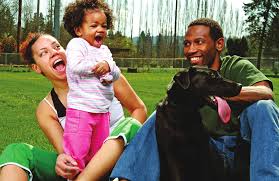 everyday life, and can focus more on the challenges and conflict in the story you are writing. As an example, you can include a dog, or parrot in your story, but the actions and reactions of a pooch or chatty bird won’t come naturally as you write if you’ve never lived with a pet. The animal’s presence won’t flow naturally into the life of your hero if they haven’t been a part of yours. The tiny nuances of life with a family won’t be something you know in your gut as you’re writing and if you’re including family life you personally haven’t ever experienced, it’s another thing you’re going to have to spend a lot of time and effort researching. It’s just easier for a writer to make their main characters people who’ve come from a similar background. everyday life, and can focus more on the challenges and conflict in the story you are writing. As an example, you can include a dog, or parrot in your story, but the actions and reactions of a pooch or chatty bird won’t come naturally as you write if you’ve never lived with a pet. The animal’s presence won’t flow naturally into the life of your hero if they haven’t been a part of yours. The tiny nuances of life with a family won’t be something you know in your gut as you’re writing and if you’re including family life you personally haven’t ever experienced, it’s another thing you’re going to have to spend a lot of time and effort researching. It’s just easier for a writer to make their main characters people who’ve come from a similar background.
XX
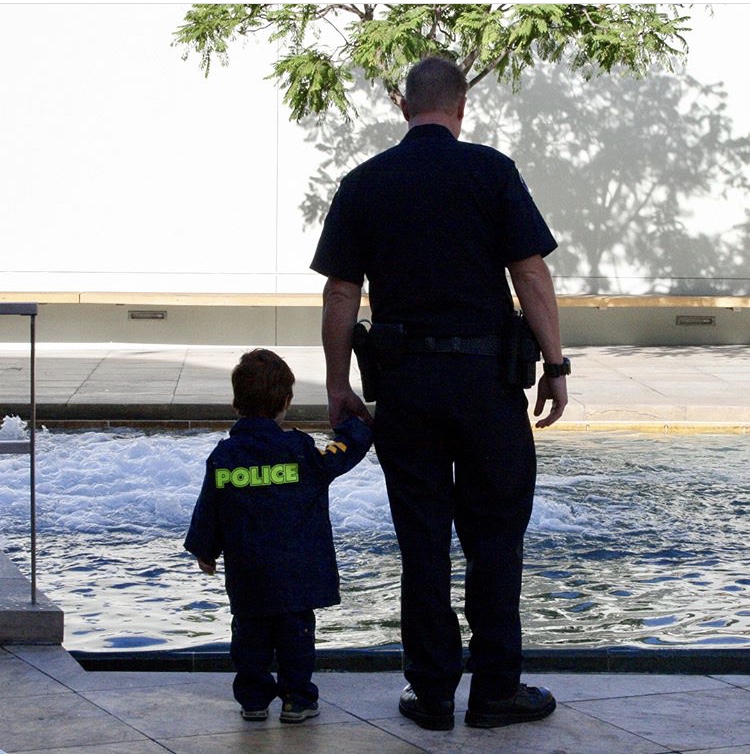 But family experiences could translate into a writer’s fictional world in direct opposition. If your mother was totally focused on being someone important in the working world, almost never there for the big things in your life, you might want to create a character who had all the things you didn’t have. So, you borrow from someone else’s life. If your dad was a policeman and you spent every day worrying about his safety, you might want to create a father who taught high school math, or was an investment broker. Eventually, though, unless you are writing for Hallmark or Harlequin, you are going to have to branch out and include things you are less familiar with. Otherwise your books and characters will become cookie cutter shapes, so be wary of making all your characters similar to the ones you grew up with. But family experiences could translate into a writer’s fictional world in direct opposition. If your mother was totally focused on being someone important in the working world, almost never there for the big things in your life, you might want to create a character who had all the things you didn’t have. So, you borrow from someone else’s life. If your dad was a policeman and you spent every day worrying about his safety, you might want to create a father who taught high school math, or was an investment broker. Eventually, though, unless you are writing for Hallmark or Harlequin, you are going to have to branch out and include things you are less familiar with. Otherwise your books and characters will become cookie cutter shapes, so be wary of making all your characters similar to the ones you grew up with.
XX
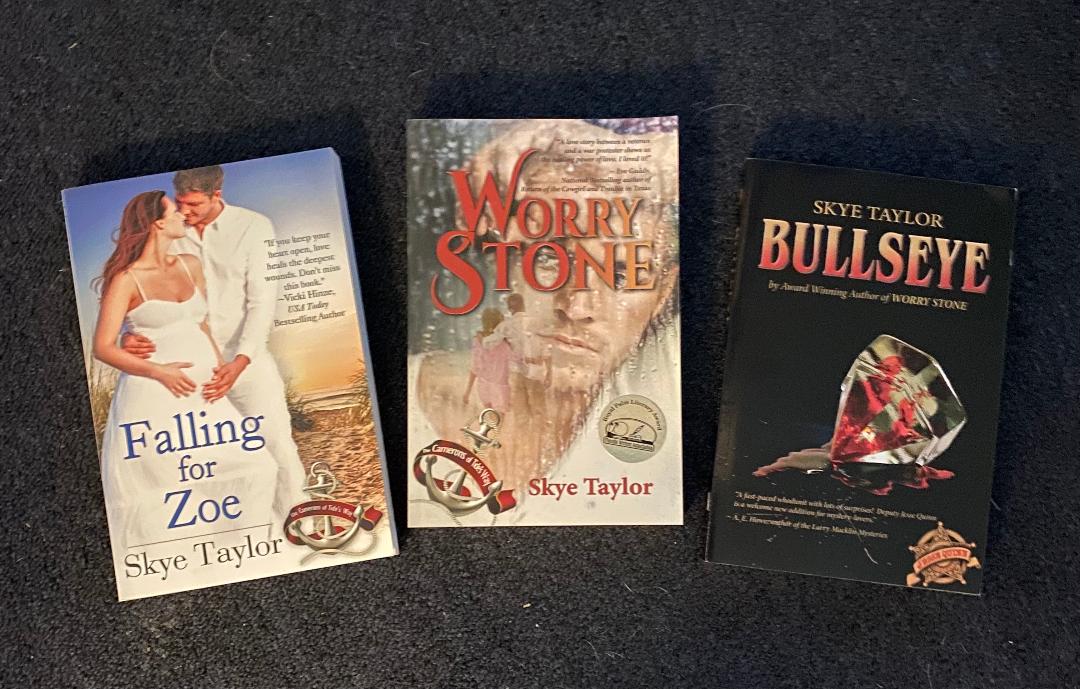 In my own stories, hints if not outright events from my family life have appeared. My mother had Alzheimer’s so my character Jake in Falling for Zoe had a mother-in-law stricken with the ailment and things she did and said were very much mirrors to the events in my own mother’s life. My brother served in Vietnam and struggled with the UNwelcome home he suffered after his time at war. He graciously and I might add, bravely, relived some of those experiences for me when I was writing Worry Stone. Jesse Quinn, in Bullseye, is a mother with teenagers, a son who’s her defender and a daughter who thinks mom is clueless. It was easy to write that side of her life because I’ve been there, done that. Her life as a sheriff’s deputy not so much. I had to do a lot of interviewing with female deputies to find out how they integrate that life commitment into the rest of their world. In my own stories, hints if not outright events from my family life have appeared. My mother had Alzheimer’s so my character Jake in Falling for Zoe had a mother-in-law stricken with the ailment and things she did and said were very much mirrors to the events in my own mother’s life. My brother served in Vietnam and struggled with the UNwelcome home he suffered after his time at war. He graciously and I might add, bravely, relived some of those experiences for me when I was writing Worry Stone. Jesse Quinn, in Bullseye, is a mother with teenagers, a son who’s her defender and a daughter who thinks mom is clueless. It was easy to write that side of her life because I’ve been there, done that. Her life as a sheriff’s deputy not so much. I had to do a lot of interviewing with female deputies to find out how they integrate that life commitment into the rest of their world.
XX
Sometimes it’s just the little things. Like your little brother slipping bits of food to the dog under the table while mom isn’t looking, or mom coming home from a church meeting and always slipping quietly into your room to kiss your forehead and tuck the covers a little tighter around your shoulders. Or the frustration dad has packing the car with the endless bits and pieces your mother keeps bringing out to take on vacation. The sudden pall in the house when 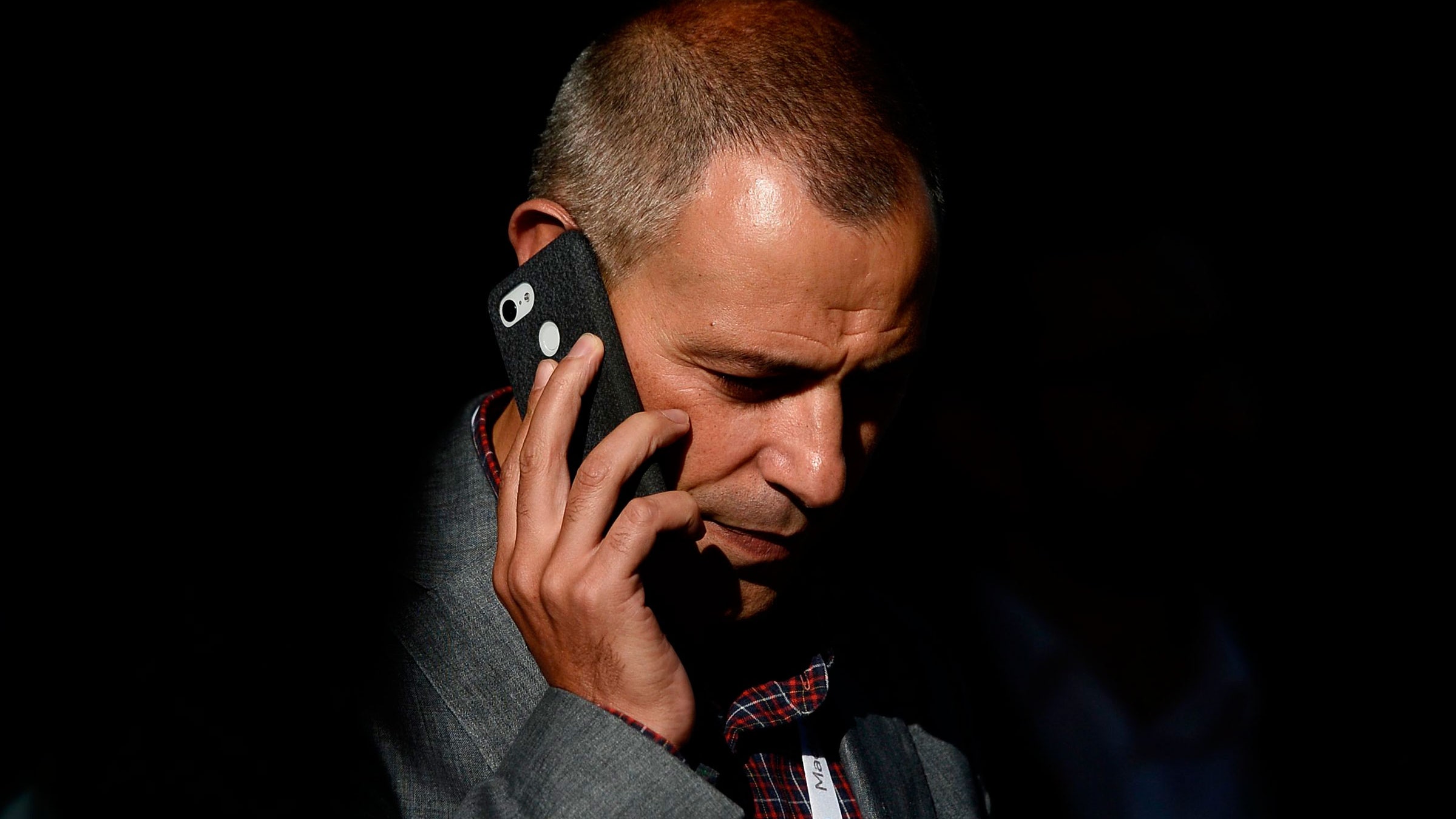 one of your parents gets a phone call and you learn that your grandma has died. Or your brother was wounded in the war, or for some, even worse – will be coming home in a flag covered coffin. The endless discussions about who takes the trash out, or cleans the litter box. Who left the lights on, or dirty dishes in the sink. one of your parents gets a phone call and you learn that your grandma has died. Or your brother was wounded in the war, or for some, even worse – will be coming home in a flag covered coffin. The endless discussions about who takes the trash out, or cleans the litter box. Who left the lights on, or dirty dishes in the sink.
XX
So – to answer the question this blog post started with: How do your family experiences translate into writing scenes? - The list of things that spell FAMILY is pretty long, but all those possibilities give your stories and characters the feeling of being real. Your reader can “feel” or picture them happening and this draws them into a familiar setting and makes them feel like they’re part of the story. It helps your reader relate to your characters, and become emotionally involved, cheering for them, or urging them not to make the mistake you can see coming. And keeping your reader attached to your characters is what keeps them reading to the last page. Which is every author’s goal.
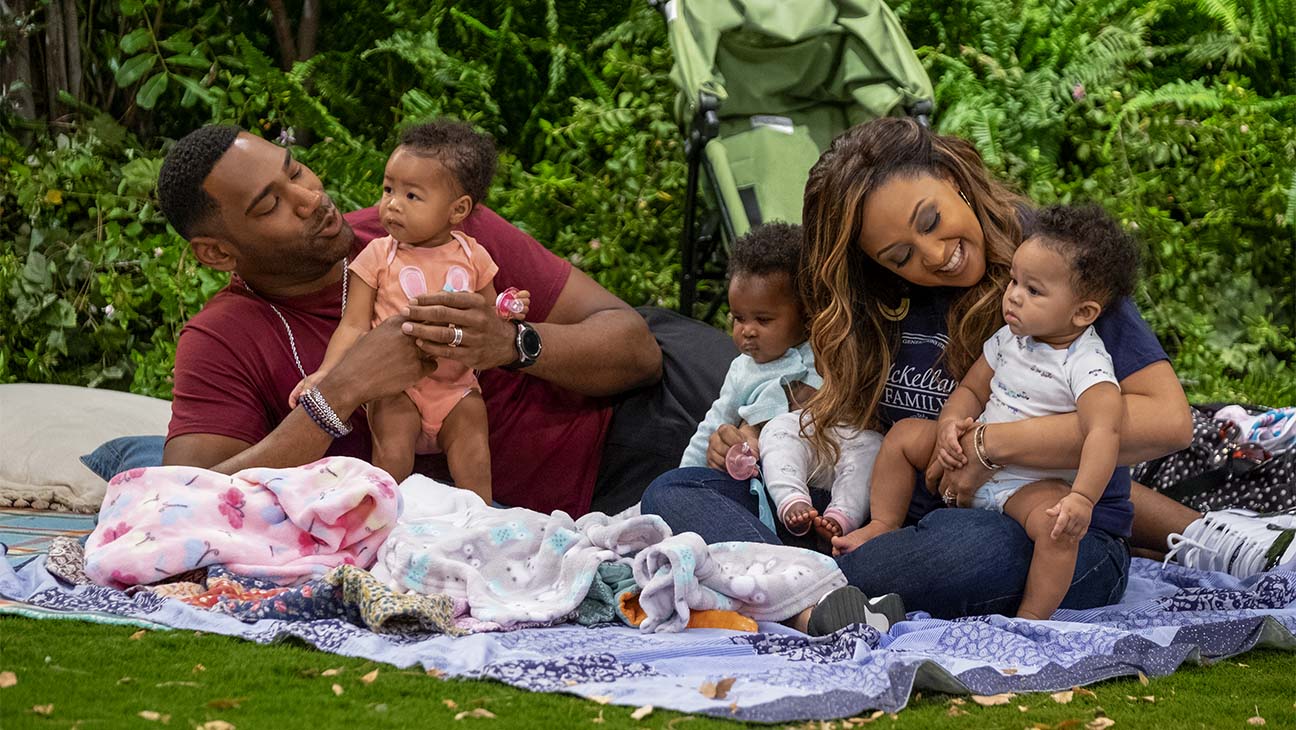
Now I’m going to shut up and send you to check out how these other authors incorporate family into their writing.

Anne Stenhouse
Dr. Bob Rich
Connie Vines
Marci Baun
Judith Copek
Diane Bator
Victoria Chatham
Rhobin L Courtright
Friday, November 19 2021
 For our November Round Robin Blog Hop we were asked to describe a flawed or evil character we have or might use in a story. How did they become so flawed? What part will they play in the story and what will happen to them? For our November Round Robin Blog Hop we were asked to describe a flawed or evil character we have or might use in a story. How did they become so flawed? What part will they play in the story and what will happen to them?
XX
All of my stories have begun with what I call my bible of characters with a brief physical description and any other important detail that will influence the story. And my main character(s) have lengthy bios – sometimes several pages long. I know them inside and out, so 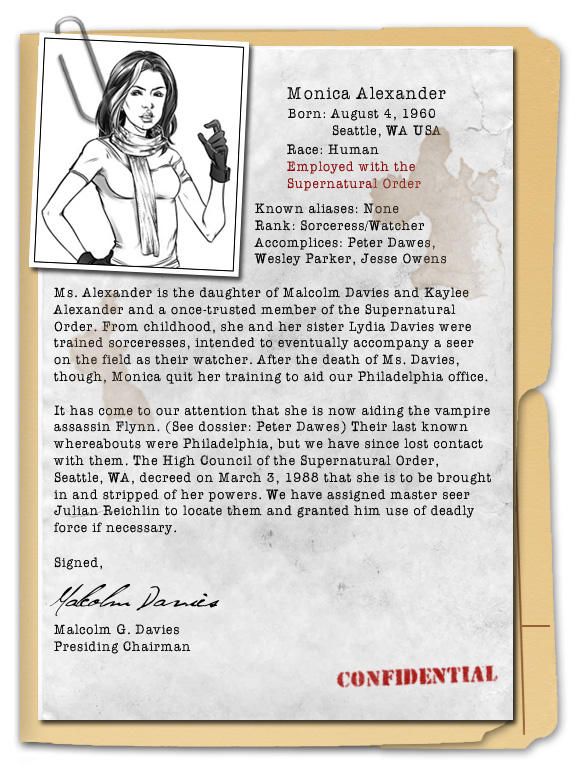 I know how they will react when I throw them under the bus. I just drop them into the action and let them run with the ball. I know how they will react when I throw them under the bus. I just drop them into the action and let them run with the ball.
XX
Unlike a fairly large and devoted audience, I don’t watch programs like Criminal Minds or FBI Most Wanted because I find that level of evil a long way from entertaining. So, I guess it’s no surprise I’ve never really had a truly twisted, evil character in any of my books. At least, not on purpose . . . .
XX
 Years ago, I pitched The Candidate to an editor at a conference and she requested the manuscript. For reasons I no longer knew, I’d written it entirely from one man’s POV – my protagonist was a man in the midst of a hotly contested race for the White House when a personal crisis erupted that threatened everything he knew about himself and his candidacy. After she’d read my work, she said she loved the premise and the characters but felt there wasn’t enough tension in the story. (Apparently having your entire life thrown into disarray wasn’t tense enough at this critical juncture of his life?) But I returned to the manuscript with her comments in mind and ended up writing it from several points of view. I made it a three-way race for the presidency, but the story wasn’t about politics. It was about my hero and a difficult decision he faced, the candidate currently ahead in the polls hiding an important part of who he was personally, and a third candidate willing to do anything to win. About halfway through my write-by-the-seat-of-my-pants revision, I realized I had to create a villain and this third candidate ended up with a past that the voters wouldn’t be able to accept. I told his part of Years ago, I pitched The Candidate to an editor at a conference and she requested the manuscript. For reasons I no longer knew, I’d written it entirely from one man’s POV – my protagonist was a man in the midst of a hotly contested race for the White House when a personal crisis erupted that threatened everything he knew about himself and his candidacy. After she’d read my work, she said she loved the premise and the characters but felt there wasn’t enough tension in the story. (Apparently having your entire life thrown into disarray wasn’t tense enough at this critical juncture of his life?) But I returned to the manuscript with her comments in mind and ended up writing it from several points of view. I made it a three-way race for the presidency, but the story wasn’t about politics. It was about my hero and a difficult decision he faced, the candidate currently ahead in the polls hiding an important part of who he was personally, and a third candidate willing to do anything to win. About halfway through my write-by-the-seat-of-my-pants revision, I realized I had to create a villain and this third candidate ended up with a past that the voters wouldn’t be able to accept. I told his part of  the story from his campaign manager’s point of view. Then I stirred up a Twitter storm to release bits and pieces of the the candidate’s past, and revealed the evil through the eyes of his horrified friend and advocate. the story from his campaign manager’s point of view. Then I stirred up a Twitter storm to release bits and pieces of the the candidate’s past, and revealed the evil through the eyes of his horrified friend and advocate.
XX
Blair Cabot and his nefarious deeds of the past catching up with him in the present did what that editor had asked for and turned an okay story into a really good read, but I never had any desire to use him again, thus his existence ended with The Candidate.
XX
 After that mainstream effort, I turned to romance/women’s fiction type stories, and have a reasonably successful series of 6 books (The Camerons of Tides Way). In book five, Keeping His Promise, I followed my usual formula, creating my hero and heroine with detailed bios, secret longings and passions, and current problems. Kate Cameron is vehemently against a plan to turn an old plantation willed to the town, and currently a drag on the town’s coffers into a second chance house for young men who’ve gone astray and want to get their lives headed in the right direction. The hero is a local cop who is in favor of the proposal. That was the external conflict I created for this pair who were falling in love in spite of their differences. I had my bible of characters made and was happily ¾ of the way through the story when I realized I needed some event, unavoidable facts or someone who would say or do something to change Kate’s mind. . . . Lucas Trevlyn walked in and sat down and took over the impasse. After that mainstream effort, I turned to romance/women’s fiction type stories, and have a reasonably successful series of 6 books (The Camerons of Tides Way). In book five, Keeping His Promise, I followed my usual formula, creating my hero and heroine with detailed bios, secret longings and passions, and current problems. Kate Cameron is vehemently against a plan to turn an old plantation willed to the town, and currently a drag on the town’s coffers into a second chance house for young men who’ve gone astray and want to get their lives headed in the right direction. The hero is a local cop who is in favor of the proposal. That was the external conflict I created for this pair who were falling in love in spite of their differences. I had my bible of characters made and was happily ¾ of the way through the story when I realized I needed some event, unavoidable facts or someone who would say or do something to change Kate’s mind. . . . Lucas Trevlyn walked in and sat down and took over the impasse.
XX
 Lucas had a mixed past. Once a good kid and an excellent soldier, then a man gone completely off the rails. A man who’d gotten in trouble with the law and done time behind bars. Twice! Not (remember I’m not entertained by stories that include twisted minds) an evil man, but certainly the sort you might cross the street to avoid, and caution your kids about. But he was also a man who had fallen so far that he’d lost hope and decided that he wasn’t worth taking up space on this earth . . . until an off-duty cop found him on the wrong side of the railing on a highway overpass and reached out a helping hand. Lucas had a mixed past. Once a good kid and an excellent soldier, then a man gone completely off the rails. A man who’d gotten in trouble with the law and done time behind bars. Twice! Not (remember I’m not entertained by stories that include twisted minds) an evil man, but certainly the sort you might cross the street to avoid, and caution your kids about. But he was also a man who had fallen so far that he’d lost hope and decided that he wasn’t worth taking up space on this earth . . . until an off-duty cop found him on the wrong side of the railing on a highway overpass and reached out a helping hand.
XX
Like Blair Cabot, Lucas came into this story late, but filled a vital need for the plot. And he somehow captured my imagination. He now has a very detailed dossier and I have plans to write his story to add to the Camerons of Tide’s Way series. I already have a short story boiled down from that lengthy background that you can read here: Second Chances. Now I want to give him a new lease on life and his own happy ever after.
XX
Check out what some other authors have done with the bad boys and girls in their stories:
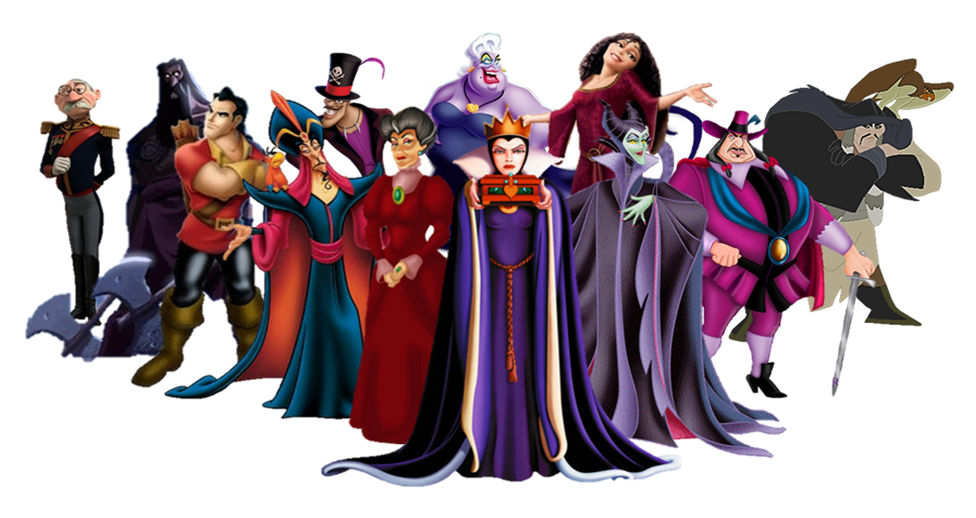
Anne Stenhouse
Dr. Bob Rich
Connie Vines
Marci Baun
Diane Bator
Victoria Chatham
Rhobin L Courtright
Saturday, October 23 2021
 Welcome to our Round Robin Blog Hop for October where we've been asked to share a childhood Halloween memory or tell about our scariest Halloween. Welcome to our Round Robin Blog Hop for October where we've been asked to share a childhood Halloween memory or tell about our scariest Halloween.
XX
To be honest, I don't recall ever having a super scary Halloween. Even when I visited haunted houses that were meant to be scary, I knew they weren't real. So I thought I'd share some of my fun or funny Halloween memories. I’m going to date myself, I know, but Halloween when I was a kid was very different than it is today and I think half the time us kids or even our parents might have ended up being handcuffed and tucked into the back of a police cruiser had we gotten up to the same high-jinks in this century.
XX
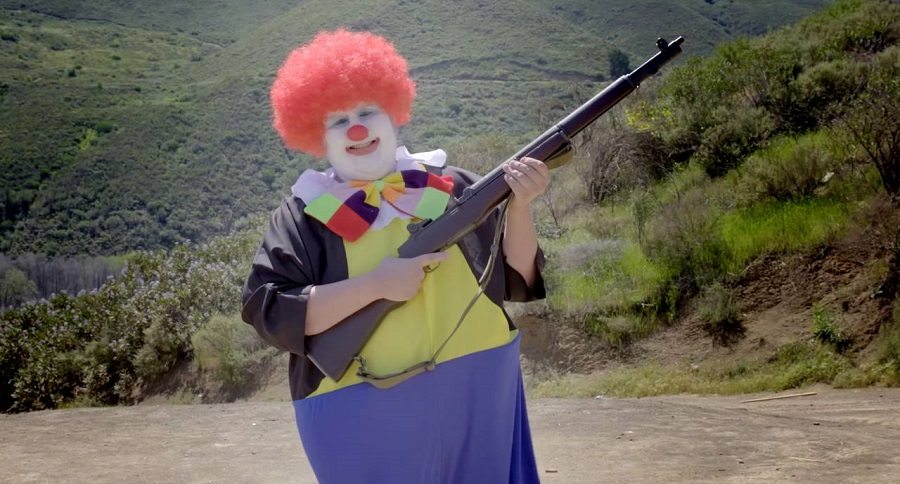 Picture Aunt Bea on Mayberry RFD and you have a good idea what my maternal grandmother was like. A kindly lady who always had fresh baked cookies to share, a victory garden out back and got down on the floor to play with us whenever we visited. Now picture that same woman dressed in a clown costume, toting a rifle and shooting out the streetlights. I didn’t actually see this happen, but I heard the story from several unimpeachable sources and my grandmother didn’t deny it when asked. Picture Aunt Bea on Mayberry RFD and you have a good idea what my maternal grandmother was like. A kindly lady who always had fresh baked cookies to share, a victory garden out back and got down on the floor to play with us whenever we visited. Now picture that same woman dressed in a clown costume, toting a rifle and shooting out the streetlights. I didn’t actually see this happen, but I heard the story from several unimpeachable sources and my grandmother didn’t deny it when asked.
XX
 Then there was my dad, who admittedly had always been something of a cut-up, together with a friend and removed the bench seat from another neighbor’s car, braced it across poor man’s doorway and then stuck a pin in his doorbell. Mr. Green knew immediately who’d done it and called them out of their hiding places by name. Then all three got a good laugh and ended up sitting on the Mr. Green’s porch sharing a bottle of whiskey. Then there was my dad, who admittedly had always been something of a cut-up, together with a friend and removed the bench seat from another neighbor’s car, braced it across poor man’s doorway and then stuck a pin in his doorbell. Mr. Green knew immediately who’d done it and called them out of their hiding places by name. Then all three got a good laugh and ended up sitting on the Mr. Green’s porch sharing a bottle of whiskey.
XX
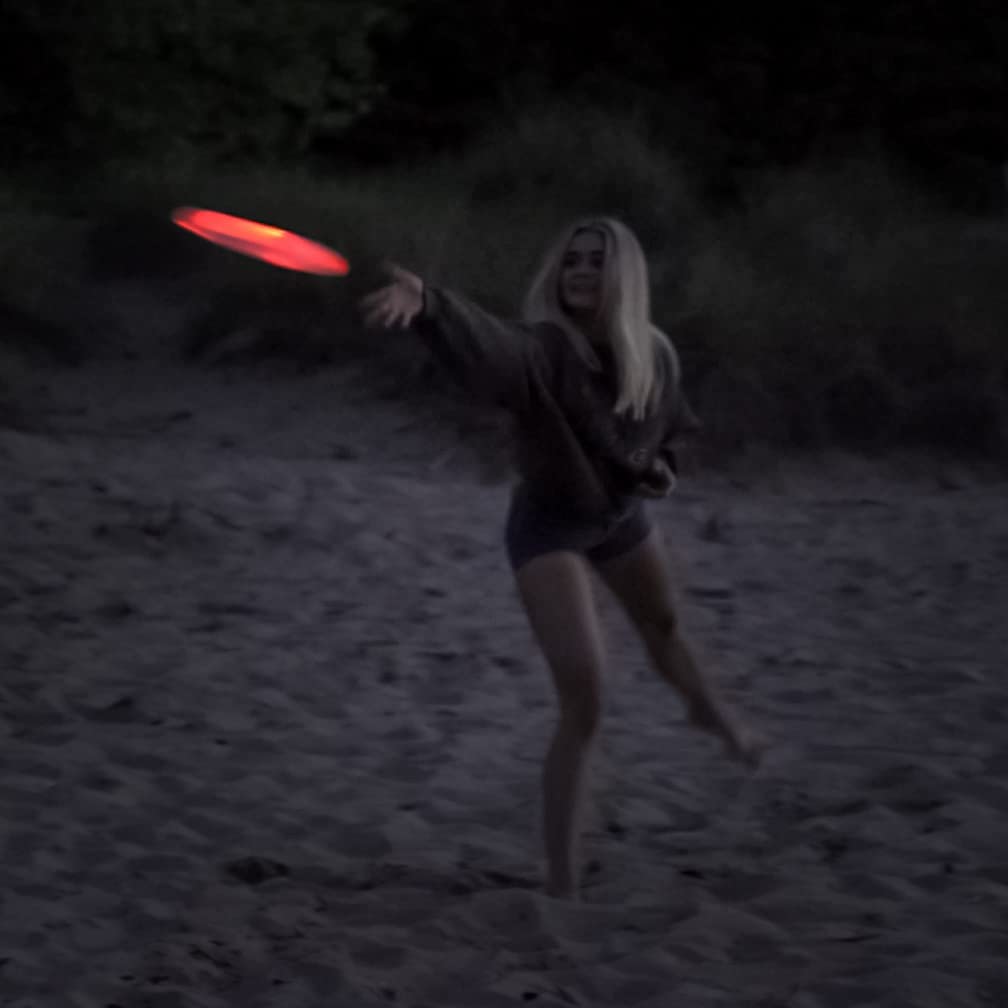 As for my own twisted ideas of Halloween fun - one year, long after the candy had been collected and the porch lights turned off, I and three of my friends donned our darkest clothes and headed for the house on the corner with a glow-in-the-dark frisbee. The houses on both sides of the street had a privet hedge bordering their lawns and the plan was to wait until a car approached and sail the frisbee across the hood of their car. It was harder to time the hurl than we had thought and it took quite a few tries before the first startled motorist thought he was seeing a real UFO while we giggled helplessly behind the hedge. As for my own twisted ideas of Halloween fun - one year, long after the candy had been collected and the porch lights turned off, I and three of my friends donned our darkest clothes and headed for the house on the corner with a glow-in-the-dark frisbee. The houses on both sides of the street had a privet hedge bordering their lawns and the plan was to wait until a car approached and sail the frisbee across the hood of their car. It was harder to time the hurl than we had thought and it took quite a few tries before the first startled motorist thought he was seeing a real UFO while we giggled helplessly behind the hedge.
XX
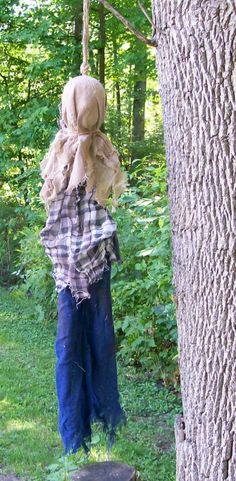 Another year, we “borrowed” the dummy decorating someone’s front porch. (Mind you, this was well after dark, unlike the photo to the left.) I dug up a length of rope from my father’s garage and we tied it around the dummy’s neck, then threw the other end over the heavy cable connecting two telephone poles on that same corner. We adjusted the height so the dummy’s feet just brushed the ground, then pulled our stuffed man back into a gap in the hedge. And waited. Finally, a car approached with his blinker on and we all held our breaths and hushed. Just as he made the turn, we shoved our ‘victim’ into his path. It made a lovely thunk as it connected with the front of the poor man’s car. The driver screeched to a halt and leapt from his car but before he could get around to the front and see what he’d hit, we hastily hauled that dummy up to the overhead cable and out of sight. Looking back as an adult and a driver, I am appalled and I’m sure my parents would have been as well, had they known. The Another year, we “borrowed” the dummy decorating someone’s front porch. (Mind you, this was well after dark, unlike the photo to the left.) I dug up a length of rope from my father’s garage and we tied it around the dummy’s neck, then threw the other end over the heavy cable connecting two telephone poles on that same corner. We adjusted the height so the dummy’s feet just brushed the ground, then pulled our stuffed man back into a gap in the hedge. And waited. Finally, a car approached with his blinker on and we all held our breaths and hushed. Just as he made the turn, we shoved our ‘victim’ into his path. It made a lovely thunk as it connected with the front of the poor man’s car. The driver screeched to a halt and leapt from his car but before he could get around to the front and see what he’d hit, we hastily hauled that dummy up to the overhead cable and out of sight. Looking back as an adult and a driver, I am appalled and I’m sure my parents would have been as well, had they known. The  distressed driver couldn’t find a body. He went back to his car and dug around for a flashlight, then looked under his car. Still no body. I’m not sure how we managed to stifle the laughter bubbling up in our throats as distressed driver couldn’t find a body. He went back to his car and dug around for a flashlight, then looked under his car. Still no body. I’m not sure how we managed to stifle the laughter bubbling up in our throats as he stood there scratching his head, but never once looked up. Eventually he got back in his car and drove away, and we convulsed in mirth. Our trick for the night achieved, we went home to start the annual task of sorting and trading our haul of candy while guzzling down the apple cider my mom served up. he stood there scratching his head, but never once looked up. Eventually he got back in his car and drove away, and we convulsed in mirth. Our trick for the night achieved, we went home to start the annual task of sorting and trading our haul of candy while guzzling down the apple cider my mom served up.
XX
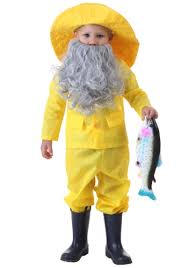 Another amusing Halloween story from my past was the year my younger brother dressed up like a fisherman and my mother bought a real fish from the market to hang on the make-shift rod my dad fashioned. That same good-natured neighbor who had his door blocked with a car seat a year earlier greeted Scotty warmly and began shoving candy corn into the fish’s mouth. None of us were ever sure what distressed my brother more – Another amusing Halloween story from my past was the year my younger brother dressed up like a fisherman and my mother bought a real fish from the market to hang on the make-shift rod my dad fashioned. That same good-natured neighbor who had his door blocked with a car seat a year earlier greeted Scotty warmly and began shoving candy corn into the fish’s mouth. None of us were ever sure what distressed my brother more –  the desecration of his “real” fish or the fact the candy corn wasn’t going to be edible. Poor Mr. Green tried to fix his mistake by offering Scotty another package of candy corn for his bulging pillow case, but Scotty just fled home in tears to tell his tale of woe to my mom. I was too busy laughing to feel sad for either Mr. Green or my brother. the desecration of his “real” fish or the fact the candy corn wasn’t going to be edible. Poor Mr. Green tried to fix his mistake by offering Scotty another package of candy corn for his bulging pillow case, but Scotty just fled home in tears to tell his tale of woe to my mom. I was too busy laughing to feel sad for either Mr. Green or my brother.
XX
I’m not sure how you celebrate the day, now or as a kid, but check out these authors and hear some more spooky, funny or outright horror stories appropriate for the holiday.
 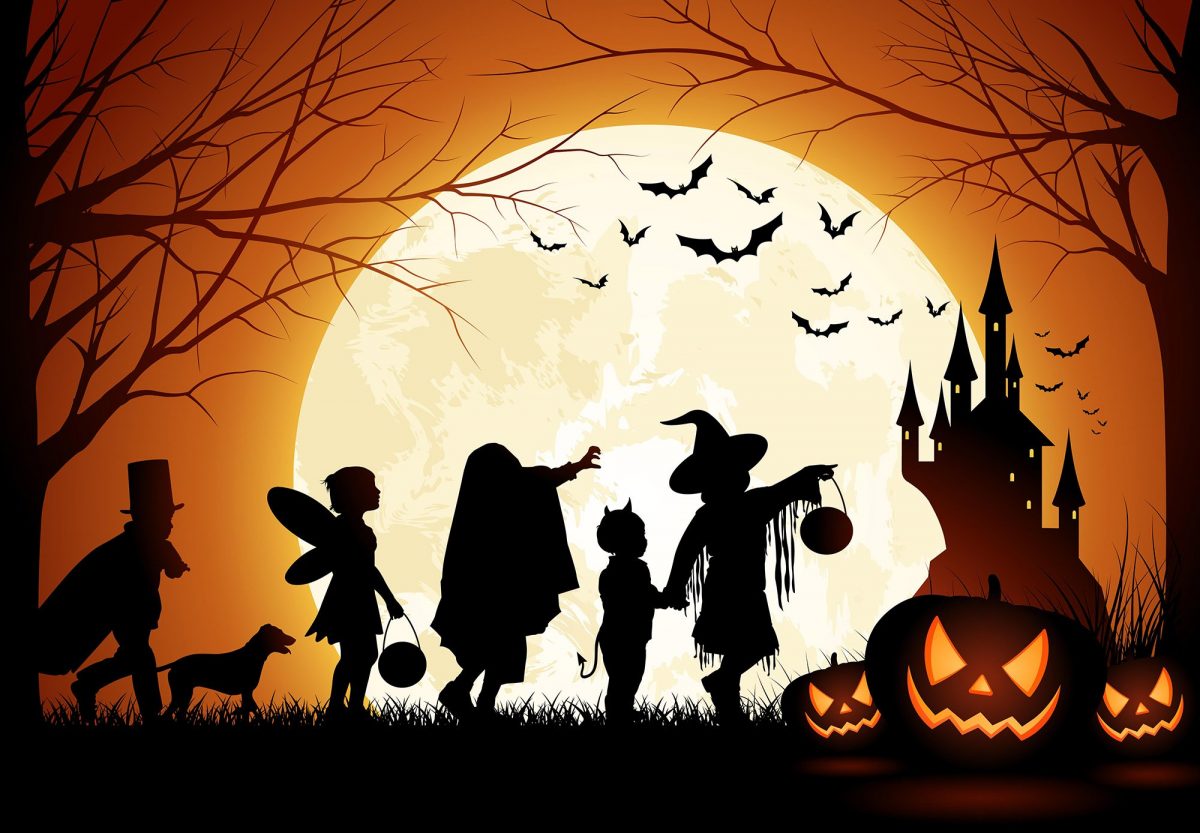 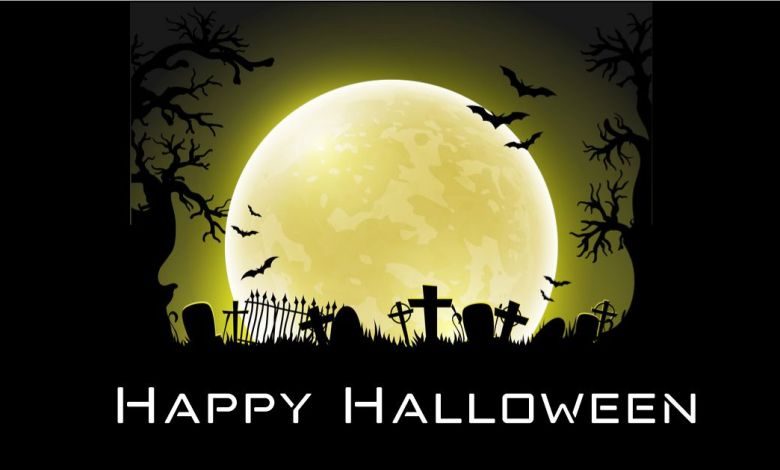

Victoria Chatham
Marci Baun
Connie Vines
Dr. Bob Rich
Rhobin L Courtright
Anne Stenhouse
Saturday, September 18 2021
 The question posed this month for our merry band of Round Robin Bloggers is -- Besides novels what other genres do you write in? Any nonfiction? The question posed this month for our merry band of Round Robin Bloggers is -- Besides novels what other genres do you write in? Any nonfiction?
XX
My first reaction to this question was, “But that’s what I write! Novels!!” Then I sat back and realized that wasn’t quite true. It isn’t even true that fiction is the only genre I’m published in.
XX
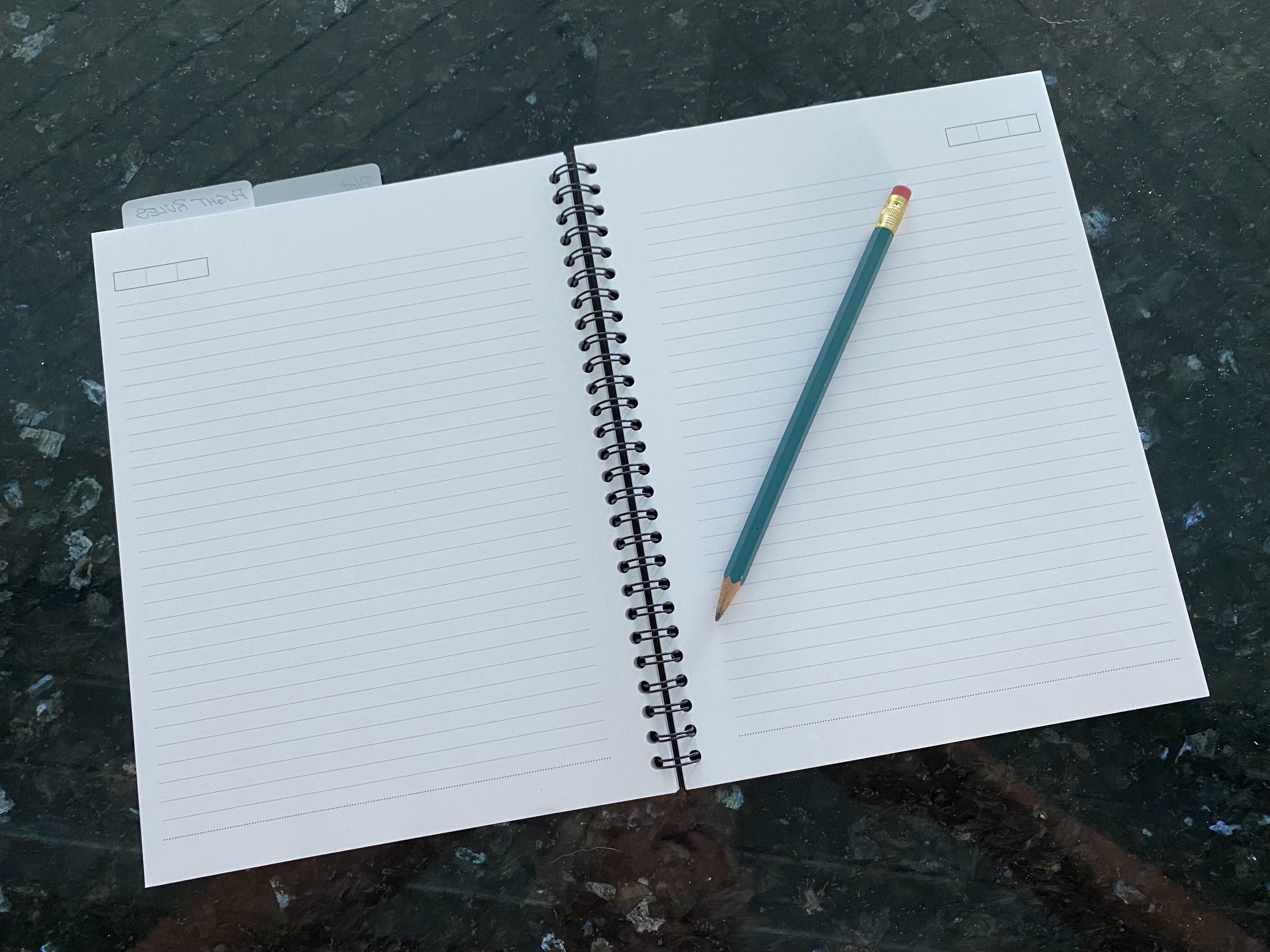 It began on the first day of Junior English in High School when my new teacher handed out a homework assignment to write 500 words on something you can smell. I really thought I was doomed. I’d always enjoyed English and especially writing, but how on earth was I supposed to come up with 500 words on a scent? That evening I dragged out my theme book – those were the days long before computers when everything was written by hand or on a typewriter which I didn’t own – and sat there, my mind a total blank. But then my brain kicked into gear and memory from my afternoon swept in. I know I’m dating myself, but I’m really old and back then we didn’t have dryers either. I think some existed It began on the first day of Junior English in High School when my new teacher handed out a homework assignment to write 500 words on something you can smell. I really thought I was doomed. I’d always enjoyed English and especially writing, but how on earth was I supposed to come up with 500 words on a scent? That evening I dragged out my theme book – those were the days long before computers when everything was written by hand or on a typewriter which I didn’t own – and sat there, my mind a total blank. But then my brain kicked into gear and memory from my afternoon swept in. I know I’m dating myself, but I’m really old and back then we didn’t have dryers either. I think some existed  somewhere, maybe in commercial laundries, but certainly not in my home or that of any of my friends. It had been my task that afternoon to collect the sheets my mother had washed and hung outdoors in the sunshine that morning and bring them in so she could remake the beds. With my pencil poised, I recalled the incredible scent of those sheets billowing around my head as I struggled to keep them from touching the ground and wrestling them into the laundry basket. All these years later, I have no recollection of what I put on that paper, but I got an A+ and perhaps that’s were my writing career got started. somewhere, maybe in commercial laundries, but certainly not in my home or that of any of my friends. It had been my task that afternoon to collect the sheets my mother had washed and hung outdoors in the sunshine that morning and bring them in so she could remake the beds. With my pencil poised, I recalled the incredible scent of those sheets billowing around my head as I struggled to keep them from touching the ground and wrestling them into the laundry basket. All these years later, I have no recollection of what I put on that paper, but I got an A+ and perhaps that’s were my writing career got started.
X X X
Over the years since then I got involved with writing newsletters, which unlike the media today, had no slant or agenda. It was all non-fiction: reports of events upcoming, or debriefs on things that had happened already, appeals for donations or applications and an occasional anecdote I thought whatever group I was writing them for might find amusing.
XX
 While I was still a stay-at-home mom, once my kids were in school I got to writing more seriously – at least I thought it was more serious. I was going to write a book! I did write a few. They languish today written on yellow lined paper in pencil in thick file folders tucked way in the back of my file cabinet. I have a feeling my kids will laugh themselves silly if they ever decide to read them after I’m gone. Or maybe I’ll toss them before that event comes along. While I was still a stay-at-home mom, once my kids were in school I got to writing more seriously – at least I thought it was more serious. I was going to write a book! I did write a few. They languish today written on yellow lined paper in pencil in thick file folders tucked way in the back of my file cabinet. I have a feeling my kids will laugh themselves silly if they ever decide to read them after I’m gone. Or maybe I’ll toss them before that event comes along.
XX
But when I was in the last days of preparing to leave the country for more than two years to share my time and the talents I’d  gained over my years of employment as a volunteer with the American Peace Corps, it occurred to me that I might like to submit essays about my experience. I contacted the local paper where I lived at the time and they were excited about the idea. Hopefully I’d have internet access and could submit my adventures via email. If not, there was always snail mail and believe me, that would have been SNAIL mail since it took over a month for anything in an envelope with a stamp on it to arrive from the South Pacific where I was sent to my kids and parents back home. As it turned out, while I didn’t have internet access as we all expect today, I did have the ability to communicate via email. As unbelievable as some of my experiences were, like swimming with whales for instance, they were all non-fiction and I really did go swimming WITH whales. Some of those adventures are currently mounted on my website and you can check them out here: https://www.skye-writer.com/peace_corps gained over my years of employment as a volunteer with the American Peace Corps, it occurred to me that I might like to submit essays about my experience. I contacted the local paper where I lived at the time and they were excited about the idea. Hopefully I’d have internet access and could submit my adventures via email. If not, there was always snail mail and believe me, that would have been SNAIL mail since it took over a month for anything in an envelope with a stamp on it to arrive from the South Pacific where I was sent to my kids and parents back home. As it turned out, while I didn’t have internet access as we all expect today, I did have the ability to communicate via email. As unbelievable as some of my experiences were, like swimming with whales for instance, they were all non-fiction and I really did go swimming WITH whales. Some of those adventures are currently mounted on my website and you can check them out here: https://www.skye-writer.com/peace_corps One other thing I learned how to write while in the Peace Corps was a Grant Proposal. Now there's a challenge - how to have your hat out asking for money and make the other guy feel like he's doing a good thing. One other thing I learned how to write while in the Peace Corps was a Grant Proposal. Now there's a challenge - how to have your hat out asking for money and make the other guy feel like he's doing a good thing.
XX
XX
 My recipes are not fiction, but none of them have been published except perhaps one or two in the previously mentioned newsletters. Like how to cook a turkey overnight, or how to make jelly. In my role as chairman of various organizations, there were numerous reports that had to get written, but nothing I’d ever brag about and I’ve served as secretary in other groups so writing up the minutes could be considered non-fiction, but only of interest to the groups involved and probably not even read by the members voting to accept them as presented. My recipes are not fiction, but none of them have been published except perhaps one or two in the previously mentioned newsletters. Like how to cook a turkey overnight, or how to make jelly. In my role as chairman of various organizations, there were numerous reports that had to get written, but nothing I’d ever brag about and I’ve served as secretary in other groups so writing up the minutes could be considered non-fiction, but only of interest to the groups involved and probably not even read by the members voting to accept them as presented.
XX
Then there is my website where I already mentioned my Peace Corps articles, but I also have a page for short stories I've written, another page for interesting tidbits of history I've discovered while researching and my blog. Lots of fun stuff on those pages. My publisher, Belle Bridge Books has also released two short stories of mine that are available in e-book format at no charge.
XX
My most recent foray into non-fiction is a short story I wrote that began with the idea it was a “story” – a fictionalized story based on my faithful pooch, MacDuff. But in the end it was a totally non-fiction memoir of my time with him and the hole he’d left in my life when he passed just short of his 15th birthday. That memoir/short story, entitled Duffy’s Footprints was one of those chosen from over a hundred entries for publication in the Florida Writer’s Annual Anthology which will be released next month. I’d include a buy link here, but since it’s not yet available, you’ll just have to wait for Florida Writer’s Association Volume 13: Footprints.
XX
 In the meantime, why not check out what a few of my fellow Round Robin Bloggers write besides novels: In the meantime, why not check out what a few of my fellow Round Robin Bloggers write besides novels:
Marci Baun
Victoria Chatham
Connie Vines
Dr. Bob Rich
Judith Copek
Rhobin L Courtright
Saturday, August 21 2021
 Do you believe it's August already? Where did the summer go. Anyway, this month we have the question: do you have any character habits or favorite words that always crop up in your writing? Do you believe it's August already? Where did the summer go. Anyway, this month we have the question: do you have any character habits or favorite words that always crop up in your writing?
XX
 I’d like to think that this doesn’t apply to my writing. Being a pantser with mostly character driven stories, I create thorough dossiers on all my main characters, both recurring in a series or for stand alone books. Usually, I end up knowing where they were born, how they reacted to kindergarden, what their life was like in high school and college etc. In doing so, I use a number of sources like birth order, family history, books like Building Believable characters and Writer’s Digest Guide to Character Traits. I also borrow from people I know, and characters on TV. So, I try to create characters with habits and speech patterns that are distinctively theirs. I’d like to think that this doesn’t apply to my writing. Being a pantser with mostly character driven stories, I create thorough dossiers on all my main characters, both recurring in a series or for stand alone books. Usually, I end up knowing where they were born, how they reacted to kindergarden, what their life was like in high school and college etc. In doing so, I use a number of sources like birth order, family history, books like Building Believable characters and Writer’s Digest Guide to Character Traits. I also borrow from people I know, and characters on TV. So, I try to create characters with habits and speech patterns that are distinctively theirs.
XX
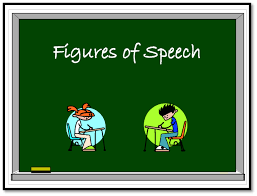 A young man I worked with as a reenactor constantly used the phrase “fair enough,” which intrigued me and I’ve endowed one or more of my characters with that habit of speech. Other speech patterns I’ve adopted for my characters come from specific career choices. If one of my characters is a cop, some of the familiar bits of cop talk will become part of their vocabulary that would be very different from the man who wears a suit and works in an office or a seventy-five year old cat lady, or a child. Because I am none of these (Well, I admit to the seventy-five, but deny the lady part and I don’t have cats.) I do a lot of eavesdropping. I volunteer at the USO lounge at the airport and it’s a great place to pick up odds and A young man I worked with as a reenactor constantly used the phrase “fair enough,” which intrigued me and I’ve endowed one or more of my characters with that habit of speech. Other speech patterns I’ve adopted for my characters come from specific career choices. If one of my characters is a cop, some of the familiar bits of cop talk will become part of their vocabulary that would be very different from the man who wears a suit and works in an office or a seventy-five year old cat lady, or a child. Because I am none of these (Well, I admit to the seventy-five, but deny the lady part and I don’t have cats.) I do a lot of eavesdropping. I volunteer at the USO lounge at the airport and it’s a great place to pick up odds and  ends of military jargon and speech habits, one of which is Sir and Ma’am for everyone. That’s also a regional thing as well. In New England, where I grew up, the only person who ever called me Ma’am was the soldier who called our office daily to report in to my boss who was his commanding officer in the reserves, but here in the south it's as common as cornbread and sweet tea. ends of military jargon and speech habits, one of which is Sir and Ma’am for everyone. That’s also a regional thing as well. In New England, where I grew up, the only person who ever called me Ma’am was the soldier who called our office daily to report in to my boss who was his commanding officer in the reserves, but here in the south it's as common as cornbread and sweet tea.
XX
 Regional dialect is another way of differentiating your characters and settings, so listening to natives of an area helps to pick out themes and habits of speech to add authenticity to your characters. An author can easily go a little overboard with some dialect, though, and totally lose the reader because every sentence is littered with dialect. I have a book out set in 1775 with a hero from Scotland. So, I was careful to choose just a few typical Scots/Gaelic words to set his dialog apart from my heroine who is a time traveler from the 20th century and made sure she had a few very late 1900s phrases and expressions in hers. Regional dialect is another way of differentiating your characters and settings, so listening to natives of an area helps to pick out themes and habits of speech to add authenticity to your characters. An author can easily go a little overboard with some dialect, though, and totally lose the reader because every sentence is littered with dialect. I have a book out set in 1775 with a hero from Scotland. So, I was careful to choose just a few typical Scots/Gaelic words to set his dialog apart from my heroine who is a time traveler from the 20th century and made sure she had a few very late 1900s phrases and expressions in hers.
XX
 But I admit that personal speech patterns tend to sneak their way into my writing. Like the use of the word “so” at the start of the last sentence in the previous paragraph. I’ve listened to recordings of myself and “so” litters my dialog, along with other totally useless words. Often in my personal speech, I use “ing” words – for instance, “Don’t be telling me that.” Or “I’ll be going now.” Both sentences in another person’s speech might be said as, “Don’t tell me that.” Or, “I’m off.” Most of this personal stuff ends up getting cut in the multiple rounds of editing, but occasionally they get overlooked. I doubt this is just a quirk of mine. We all have personal ways of speaking that just normally show up in our writing, but I’m guessing we all do a lot of editing to get rid of those repetitive things. But I admit that personal speech patterns tend to sneak their way into my writing. Like the use of the word “so” at the start of the last sentence in the previous paragraph. I’ve listened to recordings of myself and “so” litters my dialog, along with other totally useless words. Often in my personal speech, I use “ing” words – for instance, “Don’t be telling me that.” Or “I’ll be going now.” Both sentences in another person’s speech might be said as, “Don’t tell me that.” Or, “I’m off.” Most of this personal stuff ends up getting cut in the multiple rounds of editing, but occasionally they get overlooked. I doubt this is just a quirk of mine. We all have personal ways of speaking that just normally show up in our writing, but I’m guessing we all do a lot of editing to get rid of those repetitive things.
XX
 As for habits – it’s easy to use personal habits because you live them every day and you don’t have to go thinking them up. If you love to jog, it’s easy to give your character that habit as well because you don’t have to think about when, where, how, why how it makes the character feel etc. But let’s face it, not every character you create can be a jogger so you have to borrow from others. I Hope you borrow from others, or your characters will begin to blur together. As for habits – it’s easy to use personal habits because you live them every day and you don’t have to go thinking them up. If you love to jog, it’s easy to give your character that habit as well because you don’t have to think about when, where, how, why how it makes the character feel etc. But let’s face it, not every character you create can be a jogger so you have to borrow from others. I Hope you borrow from others, or your characters will begin to blur together.
XX
 I know writers who have had careers in law enforcement (or are close to someone who has) and their characters always “exit” their vehicles. Sounds like cop talk and isn't very descriptive of the activity. Perhaps some of their characters should climb out, or slide out depending on the type of car or truck, or the size and age of the person because it adds more variety, not just to the narrative, but to the characters themselves. The same could be applied to coffee drinkers. A large portion of Americans are coffee drinkers, but not all to the same level. Some folks can’t function without that first jolt of high caffeine heat. Others are more laid back about their coffee drinking and still others drink tea instead. I know writers who have had careers in law enforcement (or are close to someone who has) and their characters always “exit” their vehicles. Sounds like cop talk and isn't very descriptive of the activity. Perhaps some of their characters should climb out, or slide out depending on the type of car or truck, or the size and age of the person because it adds more variety, not just to the narrative, but to the characters themselves. The same could be applied to coffee drinkers. A large portion of Americans are coffee drinkers, but not all to the same level. Some folks can’t function without that first jolt of high caffeine heat. Others are more laid back about their coffee drinking and still others drink tea instead.
XX
 As an author, it can be so easy to just put your writing in cruise control and let what is most familiar to you take over. But if you want your characters to stand out, have personalities of their own, you have to avoid letting your personal habits loom so large. Let one of your guys play golf even if you’ve never picked up a club in your life. Have another jump out of airplanes or knit. Just as your characters’ names, careers, and physical descriptions are different, so should their speech, habits and hobbies. As an author, it can be so easy to just put your writing in cruise control and let what is most familiar to you take over. But if you want your characters to stand out, have personalities of their own, you have to avoid letting your personal habits loom so large. Let one of your guys play golf even if you’ve never picked up a club in your life. Have another jump out of airplanes or knit. Just as your characters’ names, careers, and physical descriptions are different, so should their speech, habits and hobbies.
XX
But that’s just my opinion. Why not check out these authors and see what their take on this month’s question is…
XX
 Anne Stenhouse Anne Stenhouse
Victoria Chatham
Connie Vines
Diane Bator
Beverley Bateman
Dr. Bob Rich
Fiona McGier
Helena Fairfax
Rhobin Courtright
Judith Copek
Saturday, July 17 2021
 Our Round Robin Blog Hop for July asks this question -- Do you ever delete scenes? When and why do you delete them? And what do you do with them? Do you save them? Or just toss them? Our Round Robin Blog Hop for July asks this question -- Do you ever delete scenes? When and why do you delete them? And what do you do with them? Do you save them? Or just toss them?
XX
 Every book I start has a folder and one of the first files in that folder along with the book bible is one called Bits & Pieces. To start with, since I’m not a plotter, and not all my writing is done linear so I pop scenes that come to me, but aren’t ready to Every book I start has a folder and one of the first files in that folder along with the book bible is one called Bits & Pieces. To start with, since I’m not a plotter, and not all my writing is done linear so I pop scenes that come to me, but aren’t ready to 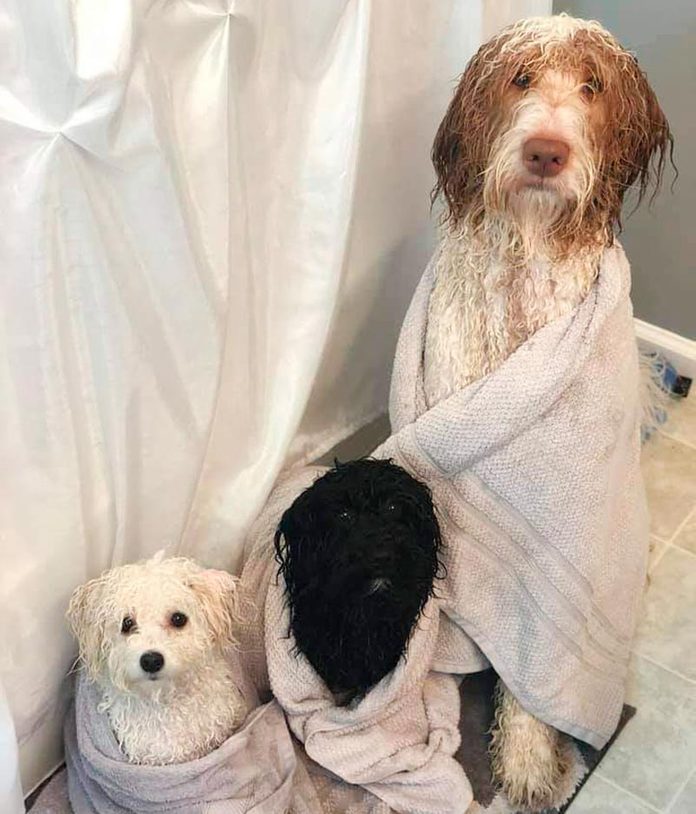 appear in the book in this file. Sometimes, as I lay in bed waiting for sleep to claim me, or while walking on the beach without earbuds and someone else’s book playing back in my ear, whole scenes will come to me. Sometimes it’s a conversation two of my characters have, or sometimes it’s a vivid scene, complete with all the senses of something that happens to them. Early on in my writing career, other authors suggested keeping a notebook by my bed to jot down these thoughts and ideas, or carrying a small recorder to pop them into. appear in the book in this file. Sometimes, as I lay in bed waiting for sleep to claim me, or while walking on the beach without earbuds and someone else’s book playing back in my ear, whole scenes will come to me. Sometimes it’s a conversation two of my characters have, or sometimes it’s a vivid scene, complete with all the senses of something that happens to them. Early on in my writing career, other authors suggested keeping a notebook by my bed to jot down these thoughts and ideas, or carrying a small recorder to pop them into.  The recorder might work in the car or while on the beach, but I’ve learned that if I have an idea in bed at night – just get up, wake the computer up and start typing while all the thoughts are fresh and clear. It helps that I’m retired from my 9-5 job and it’s okay to be working on a book at 2:00 am. I put whatever I type up into my Bits & Pieces file. Same goes for brilliant bits that hit me in the shower – skip picking out clothes and getting dressed first – just wrap a towel around myself and go type it all up right now. The recorder might work in the car or while on the beach, but I’ve learned that if I have an idea in bed at night – just get up, wake the computer up and start typing while all the thoughts are fresh and clear. It helps that I’m retired from my 9-5 job and it’s okay to be working on a book at 2:00 am. I put whatever I type up into my Bits & Pieces file. Same goes for brilliant bits that hit me in the shower – skip picking out clothes and getting dressed first – just wrap a towel around myself and go type it all up right now.
XX
 Since I already have this file in my book folder – if for one reason or another a scene currently already in the story isn’t working, why toss all that work out when I can cut and paste it into the Bits & Pieces file. You never know if part or all of it might fit really well somewhere else. I have in the past cut huge chunks of text that weren’t working and hit delete, then days later or weeks later, I come to a place where I think – OMG – this is where that scene should be, only it’s gone. Along with anything that was really brilliant about it. But if it’s the Bits & Pieces file I can go copy it and drag it back into the manuscript. Might need significant editing or rearranging, but still, the ideas, words, thoughts and dialog are there to get started with. Since I already have this file in my book folder – if for one reason or another a scene currently already in the story isn’t working, why toss all that work out when I can cut and paste it into the Bits & Pieces file. You never know if part or all of it might fit really well somewhere else. I have in the past cut huge chunks of text that weren’t working and hit delete, then days later or weeks later, I come to a place where I think – OMG – this is where that scene should be, only it’s gone. Along with anything that was really brilliant about it. But if it’s the Bits & Pieces file I can go copy it and drag it back into the manuscript. Might need significant editing or rearranging, but still, the ideas, words, thoughts and dialog are there to get started with.
XX
 So, why would I cut a scene from a manuscript. So many reasons. One I’ve already hinted at – didn’t fit in that particular chapter or place. Maybe didn’t fit in this book at all, but who knows … I write series … it might fit in a later book, just change the names if appropriate. Another reason for removing a scene is that it does not move the plot forward. You might love the clever wording or the sparkling dialog you created, but it does absolutely nothing for the plot. Or you might realize as you go back over it, that it is mostly info-dump. And any good author knows there are other ways to tell a reader things they need to know without large chunks of infodump which drag the pace to a standstill and tend to bore the reader. So, why would I cut a scene from a manuscript. So many reasons. One I’ve already hinted at – didn’t fit in that particular chapter or place. Maybe didn’t fit in this book at all, but who knows … I write series … it might fit in a later book, just change the names if appropriate. Another reason for removing a scene is that it does not move the plot forward. You might love the clever wording or the sparkling dialog you created, but it does absolutely nothing for the plot. Or you might realize as you go back over it, that it is mostly info-dump. And any good author knows there are other ways to tell a reader things they need to know without large chunks of infodump which drag the pace to a standstill and tend to bore the reader.
XX
 Sometimes I remove a scene – temporarily. I realize my timing is all wrong. This often happens when I am editing after the first draft is done, or if I’ve been away from my book for a while and come back needing to go back over what I’d written previously to get myself in gear again. And suddenly I realize I’ve gotten things happening in the wrong order. The POV character learns something they can’t know until somewhere later in the story, or yesterday this guy got shot and today, instead of being in a hospital bed where he belongs, he’s going surfing with a buddy or back on the beat. I need to give him time to recover first. In the last chapter this kid celebrated his 12th birthday and today he’s driving a car? If you don’t have a timeline in mind or sketched out when you start, it’s easy to get things out of order. So, you need to clip scenes and drop them elsewhere in the manuscript, or in my case, in the Bits & Pieces file until the right time and place appears. Sometimes I remove a scene – temporarily. I realize my timing is all wrong. This often happens when I am editing after the first draft is done, or if I’ve been away from my book for a while and come back needing to go back over what I’d written previously to get myself in gear again. And suddenly I realize I’ve gotten things happening in the wrong order. The POV character learns something they can’t know until somewhere later in the story, or yesterday this guy got shot and today, instead of being in a hospital bed where he belongs, he’s going surfing with a buddy or back on the beat. I need to give him time to recover first. In the last chapter this kid celebrated his 12th birthday and today he’s driving a car? If you don’t have a timeline in mind or sketched out when you start, it’s easy to get things out of order. So, you need to clip scenes and drop them elsewhere in the manuscript, or in my case, in the Bits & Pieces file until the right time and place appears.
XX
 Another reason scenes get removed is when I discover I’ve painted myself into corner with no way out. Chances are these places will end up in a circular file eventually, but for now, they go into Bits & Pieces with other things I haven’t decided where to put. Even if the corner isn’t totally inescapable, I might be looking at a huge sagging middle. I stare at the manuscript, and remember, I’m a pantser here so I can’t just refer to my detailed plot outline (which I don’t have) and figure out where to go next. Often I can get over this hump by asking myself some serious questions about how important all the recent scenes that got me into this slump are. Maybe they contain stuff that I absolutely need to have, but maybe they would be better if I rewrote them from scratch. Or just move them to that other file for now, play with them there and save them for later. Or maybe they just aren’t that important after all. Or they just don’t fit this story. Another reason scenes get removed is when I discover I’ve painted myself into corner with no way out. Chances are these places will end up in a circular file eventually, but for now, they go into Bits & Pieces with other things I haven’t decided where to put. Even if the corner isn’t totally inescapable, I might be looking at a huge sagging middle. I stare at the manuscript, and remember, I’m a pantser here so I can’t just refer to my detailed plot outline (which I don’t have) and figure out where to go next. Often I can get over this hump by asking myself some serious questions about how important all the recent scenes that got me into this slump are. Maybe they contain stuff that I absolutely need to have, but maybe they would be better if I rewrote them from scratch. Or just move them to that other file for now, play with them there and save them for later. Or maybe they just aren’t that important after all. Or they just don’t fit this story.
XX
  Dealing with scenes that don’t work where I’ve got them is like when my puppy finds a lovely big stick on the beach and drags it home, then tries to bring it into the house, but it won’t fit through the door. She backs up and tries again, tilting her head one way, then the other. Drops it and picks it up in a different place and tries again. Still won’t go. Eventually she either gives up deciding she really didn’t need that stick after all, or she carefully grabs it by one end and drags it through the door. And sometimes she leaves it on the step for the next time she comes out to play. Might have been a great stick but it didn’t fit where she initially wanted to take it. Dealing with scenes that don’t work where I’ve got them is like when my puppy finds a lovely big stick on the beach and drags it home, then tries to bring it into the house, but it won’t fit through the door. She backs up and tries again, tilting her head one way, then the other. Drops it and picks it up in a different place and tries again. Still won’t go. Eventually she either gives up deciding she really didn’t need that stick after all, or she carefully grabs it by one end and drags it through the door. And sometimes she leaves it on the step for the next time she comes out to play. Might have been a great stick but it didn’t fit where she initially wanted to take it.
XX
 So, now you know what I do about cutting scenes – hop on over and see how these authors deal with cutting – or not cutting – their favorite scenes, or scenes that don’t belong. So, now you know what I do about cutting scenes – hop on over and see how these authors deal with cutting – or not cutting – their favorite scenes, or scenes that don’t belong.
XX
Anne Stenhouse
Dr. Bob Rich
Connie Vines
Marci Baun
Victoria Chatham
Beverley Bateman
Fiona McGier
Helena Fairfax
Rhobin L Courtright
Saturday, June 19 2021
 Our June Round Robin Blog is digging into - How authors recognize and overcome plot problems or failures? Our June Round Robin Blog is digging into - How authors recognize and overcome plot problems or failures?
XX
The first thing that occurs to me is that the answer to this question might be very different for Plotters vs Pantsers. So, since I’m a pantser, I’ll answer from my point of view and let the plotters in our group share their methods.
XX
 Since the bulk of my books begin with a germ of an idea that I nurture with detailed character dossiers and a well-considered Goal/Motivation/Conflict chart for each, my writing is basically an adventure that I am on as much as my readers. I have no idea what’s going to happen next. With one main exception – I always know how the story will end. In fact, I’ve often written the final scene or chapter before I start the book because I can see it so clearly in my head. But once I’ve got my characters who I know as well as I know myself, I plop them into the inciting incident and let them run with the ball, so to speak. Since the bulk of my books begin with a germ of an idea that I nurture with detailed character dossiers and a well-considered Goal/Motivation/Conflict chart for each, my writing is basically an adventure that I am on as much as my readers. I have no idea what’s going to happen next. With one main exception – I always know how the story will end. In fact, I’ve often written the final scene or chapter before I start the book because I can see it so clearly in my head. But once I’ve got my characters who I know as well as I know myself, I plop them into the inciting incident and let them run with the ball, so to speak.
XX
 The first inkling I might have that there is a plot problem or failure is that my characters seem to have wandered into a blind alley and are left with nowhere to go. Clearly, they’re in enemy territory and need a road map to get themselves out of trouble. As one of my brainstorming buddies calls it, they went down a rabbit hole. Now I have to stop and ask myself why they chose that alley? Why did I write that scene? Who is this new character that walked on stage and redirected the action? I consider all the options, jotting down thoughts as they come to me. Sometimes I might even write whole scenes that seem to be out of place/sync which I end up filing in a “Bits and Pieces” file I have for all my books where I save clips, thoughts, scenes and parts of scenes I might include somewhere else. The first inkling I might have that there is a plot problem or failure is that my characters seem to have wandered into a blind alley and are left with nowhere to go. Clearly, they’re in enemy territory and need a road map to get themselves out of trouble. As one of my brainstorming buddies calls it, they went down a rabbit hole. Now I have to stop and ask myself why they chose that alley? Why did I write that scene? Who is this new character that walked on stage and redirected the action? I consider all the options, jotting down thoughts as they come to me. Sometimes I might even write whole scenes that seem to be out of place/sync which I end up filing in a “Bits and Pieces” file I have for all my books where I save clips, thoughts, scenes and parts of scenes I might include somewhere else.
XX
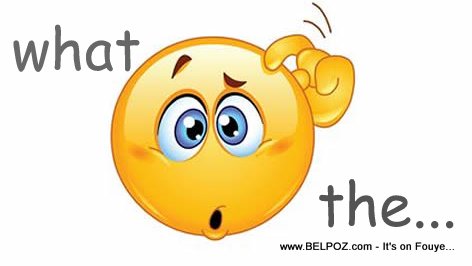 I’m one of a small group of authors that meet regularly and we call ourselves the Sandy Scribblers (a nod to all the gorgeous beaches in our town.) Our meetings cover all aspects of the writing life, but often, I get to present my plot dilemmas when they leave me floundering, and it’s the whole issue of seeing the forest for the trees. One or another of my group immediately latches onto the very heart of where I went wrong. Then they all chime in with ideas on fixing it, or eliminating the out of place scene. Presenting my confused characters with a road map or sending in the Marines to rescue them. I’m one of a small group of authors that meet regularly and we call ourselves the Sandy Scribblers (a nod to all the gorgeous beaches in our town.) Our meetings cover all aspects of the writing life, but often, I get to present my plot dilemmas when they leave me floundering, and it’s the whole issue of seeing the forest for the trees. One or another of my group immediately latches onto the very heart of where I went wrong. Then they all chime in with ideas on fixing it, or eliminating the out of place scene. Presenting my confused characters with a road map or sending in the Marines to rescue them.
XX
 Another huge and glaring proof that I’ve got a plot problem is that dreaded “Sagging Middle” that all writers hate. This is likely the same for plotters, as well. We started out with a bang and ran 80 yards for a touchdown, rebuffed the opposing team’s efforts to catch up and had a sterling second quarter. Then abruptly things fall apart. A key player is sidelined with an injury, the defense is MIA and the quarterback has been sacked. Some authors excel at getting out of these tight spots – call them the Tom Bradys of the writing world. If you’ve ever seen that man play, you’ll know he can seem totally overwhelmed, the Another huge and glaring proof that I’ve got a plot problem is that dreaded “Sagging Middle” that all writers hate. This is likely the same for plotters, as well. We started out with a bang and ran 80 yards for a touchdown, rebuffed the opposing team’s efforts to catch up and had a sterling second quarter. Then abruptly things fall apart. A key player is sidelined with an injury, the defense is MIA and the quarterback has been sacked. Some authors excel at getting out of these tight spots – call them the Tom Bradys of the writing world. If you’ve ever seen that man play, you’ll know he can seem totally overwhelmed, the 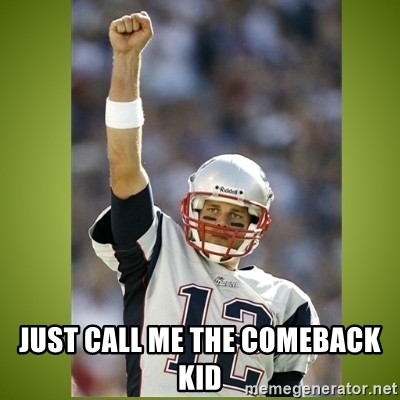 score heavily lopsided in his opponent’s favor, unable to connect with his best receivers, and is scrambling just to keep from losing the ball. Yet somehow, he comes back in the fourth quarter and pulls a rabbit out of a hat. score heavily lopsided in his opponent’s favor, unable to connect with his best receivers, and is scrambling just to keep from losing the ball. Yet somehow, he comes back in the fourth quarter and pulls a rabbit out of a hat.
XX
But Brady’s comeback didn’t happen by chance. There was some serious soul searching going on during that last break in the locker room that breathed new life into his team. This is what an author needs to do. Have a heart to heart with each of the major characters. Ask them how they feel about where they are, how they got there, what they plan to do about it. Maybe even threaten them to pull themselves together and get back on track.
XX
 My brother used to amuse our family with a completely unrehearsed discussion between a Scotsman and an Englishman, complete with accents that had us in stitches. His repartee hopped back and forth between the two and that verbal jousting was as realistic as if two entirely different people were having the discussion. This is often a tool a writer equally gifted might use all by themselves. But another way to get this pep talk under way is to bounce it around with a couple other writers. Every mind works differently so looking at your cul de sac with a trusted group of writers can produce remarkable breakthroughs. My brother used to amuse our family with a completely unrehearsed discussion between a Scotsman and an Englishman, complete with accents that had us in stitches. His repartee hopped back and forth between the two and that verbal jousting was as realistic as if two entirely different people were having the discussion. This is often a tool a writer equally gifted might use all by themselves. But another way to get this pep talk under way is to bounce it around with a couple other writers. Every mind works differently so looking at your cul de sac with a trusted group of writers can produce remarkable breakthroughs.
XX
The other major way we see or find plot problems is to engage beta readers once our first drafts are complete. This is a fresh set of eyes, or two or three sets of fresh eyes, reading, not to find all the copy edits and misspellings, but to get a sense of how the story flows. If there are potholes, your beta readers will drive right into them and immediately realize there is a problem.  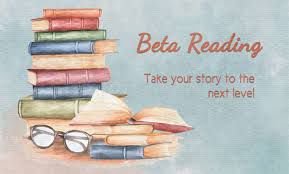 Sometimes it’s as simple as you knowing your character so well that you have her making choices and reacting to the events without actually considering why she is doing so. But the reader does not know the character as well as you do so they are suddenly left scratching their head wondering why. If they come back to you with a comment like, “I’ve no idea why Susan walked out like that.” Or “There’s just no way John would have done what you have him doing.” Clearly you’ve left some important information out, so you need to go back and add the emotions and thoughts of your characters that answer your beta readers’ questions. If your beta reader says that Jack had the patience of a saint in this confrontational scene, but his character up to that point wasn’t that of a patient person, you perhaps need to let the reader in on what was going through Jack’s head that kept him from reacting as the reader would have expected him to act. Sometimes it’s as simple as you knowing your character so well that you have her making choices and reacting to the events without actually considering why she is doing so. But the reader does not know the character as well as you do so they are suddenly left scratching their head wondering why. If they come back to you with a comment like, “I’ve no idea why Susan walked out like that.” Or “There’s just no way John would have done what you have him doing.” Clearly you’ve left some important information out, so you need to go back and add the emotions and thoughts of your characters that answer your beta readers’ questions. If your beta reader says that Jack had the patience of a saint in this confrontational scene, but his character up to that point wasn’t that of a patient person, you perhaps need to let the reader in on what was going through Jack’s head that kept him from reacting as the reader would have expected him to act.
XX
 Beta readers are not family and friends (although they can be if they approach the project objectively) Beta readers are not reading your book to give you glowing feedback and tell you it’s the best thing they’ve ever read etc. They are reading to tell you where they found problems: unexplained actions or reactions, unrealistic description, deviations from expected character behavior, outcomes that simply don’t make sense or resolutions that never happen. Sometimes, as I suggested before, overcoming these failures might just be a matter of information you skimped on, but other times it’s a huge black hole that needs to be illuminated, a pot hole in need of a road crew to fill it in or an entire plot line that needs reworking. Having good, honest Beta readers are not family and friends (although they can be if they approach the project objectively) Beta readers are not reading your book to give you glowing feedback and tell you it’s the best thing they’ve ever read etc. They are reading to tell you where they found problems: unexplained actions or reactions, unrealistic description, deviations from expected character behavior, outcomes that simply don’t make sense or resolutions that never happen. Sometimes, as I suggested before, overcoming these failures might just be a matter of information you skimped on, but other times it’s a huge black hole that needs to be illuminated, a pot hole in need of a road crew to fill it in or an entire plot line that needs reworking. Having good, honest  beta readers can be an author’s best friend. If you are traditionally published it’s often your content editor who will point all these things out, but for both traditionally and independently published writers, having a reliable beta reader is your best hedge against plot failures. Beta readers along with brainstorming partners are your best resource for fixing botched plot lines. beta readers can be an author’s best friend. If you are traditionally published it’s often your content editor who will point all these things out, but for both traditionally and independently published writers, having a reliable beta reader is your best hedge against plot failures. Beta readers along with brainstorming partners are your best resource for fixing botched plot lines.
XX
After all the fixing is done, send the book out again, perhaps to the same beta reader that gave you the feedback to see if they feel the problem has been fixed. You might also ask an entirely new beta reader who has not read this manuscript before. This is the best way to know if you’ve fixed all the problems, if your story makes sense and if the characters come across as real. Some authors I know also like to read their book out loud (to themselves.) That discipline of reading aloud can also reveal the places where there are problems.
XX
 So, now that you’ve seen how an author who writes by the seat of her pants finds and fixes plot problems, check out some of these other authors and learn how Plotters fix problems (although I suspect most of them find their problems before they begin the writing process because they’ve already plotted the story out and likely they save themselves a lot of time and grief.) So, now that you’ve seen how an author who writes by the seat of her pants finds and fixes plot problems, check out some of these other authors and learn how Plotters fix problems (although I suspect most of them find their problems before they begin the writing process because they’ve already plotted the story out and likely they save themselves a lot of time and grief.)
XX
Marci Baun
Connie Vines
Diane Bator
Beverley Bateman
Judith Copek
Dr. Bob Rich
Rhobin L Courtright
Saturday, May 22 2021
Our May Round Robin Blog Hop asks the question, Does writing change the author? Do you think your writing has changed you in any significant way?
XX
 Writing almost has to change the author for so many reasons. The most obvious would be when your first book, poem, short story or essay is published. That sense of achievement changes us. It gives us confidence to sit down and write the next one. When we enter our work in a contest and it places or wins it’s another shot in the arm that changes how we see ourselves and our work. But beyond that is how we change just from the writing itself. Writing almost has to change the author for so many reasons. The most obvious would be when your first book, poem, short story or essay is published. That sense of achievement changes us. It gives us confidence to sit down and write the next one. When we enter our work in a contest and it places or wins it’s another shot in the arm that changes how we see ourselves and our work. But beyond that is how we change just from the writing itself.
XX
 Many of our inspirations come the world around us. Things that happen not just to us, but to those we know, work with, live with and even just those we share a moment in line at the grocery store chatting with. And those events change us. Not just the events themselves, but the impact they have on us and others, and the reactions and attitudes of those affected. And some of those changes become a part of who we are, therefore they seep into our writing and change not just ourselves but our writing as well. As a glaring example, consider the events of 9/11. Events like the bombing of Pearl Harbor, or the assassination of President Kennedy and a terrorist attack in the heart of New York City rob us of a sense of security – it’s a shared and horrified loss of innocence. And it changes us. The reactions of those dealing with the results change us as well. Many of our inspirations come the world around us. Things that happen not just to us, but to those we know, work with, live with and even just those we share a moment in line at the grocery store chatting with. And those events change us. Not just the events themselves, but the impact they have on us and others, and the reactions and attitudes of those affected. And some of those changes become a part of who we are, therefore they seep into our writing and change not just ourselves but our writing as well. As a glaring example, consider the events of 9/11. Events like the bombing of Pearl Harbor, or the assassination of President Kennedy and a terrorist attack in the heart of New York City rob us of a sense of security – it’s a shared and horrified loss of innocence. And it changes us. The reactions of those dealing with the results change us as well.
XX
When we incorporate these shared events, both joyous or horrific into our stories, all authors end up doing some level of research to better understand all the aspects of the event in order to get our stories right, and to add authenticity. And that research broadens our personal understanding – so how can it NOT change us?
XX
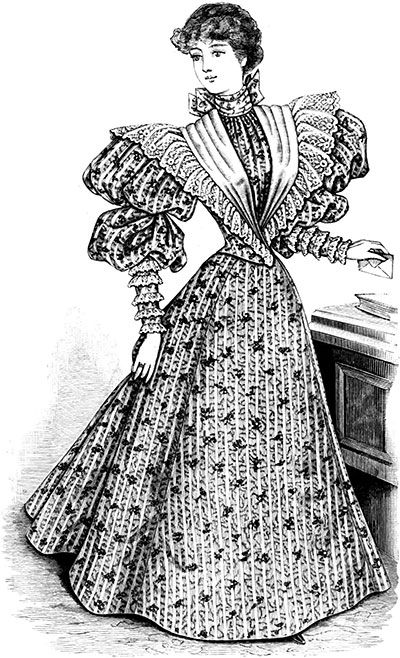 Speaking of research, for authors especially, the digging into details, historical or factual about places, times, events and places adds to our understanding of the world, and that again changes who we are and how we think about ourselves. If you need to incorporate a gun into your story but you’ve never shot one, or even held one, you have to do a little research and learning about firearms impacts your understanding of how they are used, or misused. You’re writing a historical set in Victorian times and you dig into women’s garments at the time so you can dress your characters properly. Speaking of research, for authors especially, the digging into details, historical or factual about places, times, events and places adds to our understanding of the world, and that again changes who we are and how we think about ourselves. If you need to incorporate a gun into your story but you’ve never shot one, or even held one, you have to do a little research and learning about firearms impacts your understanding of how they are used, or misused. You’re writing a historical set in Victorian times and you dig into women’s garments at the time so you can dress your characters properly.  And suddenly knowing how many pieces of clothing a woman had to don every day gives you a whole new appreciation of how good you’ve got it when you can slip into a pair of yoga pants and a T-shirt and call it done. So, no matter what detail you are looking into, it has to change your appreciation for what you already know. And suddenly knowing how many pieces of clothing a woman had to don every day gives you a whole new appreciation of how good you’ve got it when you can slip into a pair of yoga pants and a T-shirt and call it done. So, no matter what detail you are looking into, it has to change your appreciation for what you already know.
XX
Learning how others live, the mores and expectations of societies, both ancient, historical and current changes who we are as people. I spent two years in the Peace Corps in a very conservative Christian country. I was 56 when I left so my morals and expectations, what I was used to was very much a part of who I was as a mature adult and yet . . . . By the time I came home from Tonga, I felt a little shocked by the extreme lack of clothing when I saw a woman in a bikini. While I was there, a cruise ship came into our harbor and many of those aboard came ashore. I was told they were instructed to be modest in dress because Tongans are always modestly dressed, but when I saw some of these vacationers wandering down our streets even I was offended, in spite of whatever efforts they might have made. The first time I went shopping after returning home, I was totally overwhelmed with the variety and volume of options available. I’d forgotten what it was like to plop down to watch TV in the evening or toss my laundry into a machine instead of doing it by hand. And all this in just two years of living in another culture different from my own. As authors, when we write about places and times different from our own, we do our research and it might not change us as much as my two years in Tonga changed me, but it still effects how we look at people and places and it changes us.
 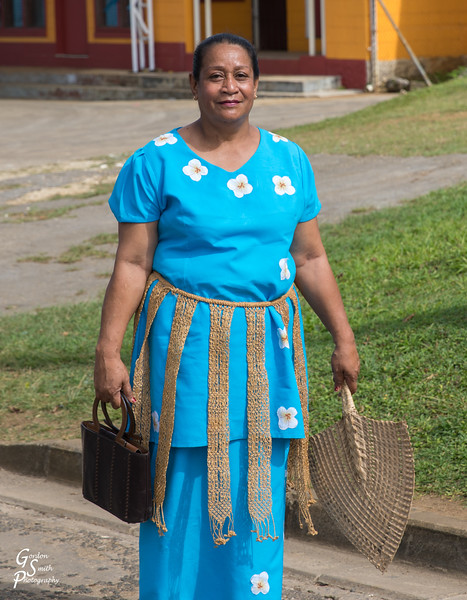  
And that’s just the research part of our writing.
XX
 There is also the character arcs and story arcs we create. Most of us grow WITH our characters. Things our characters are learning are things we are learning while we write their stories. Years ago, when I was pretty young and thought I knew it all, a man far wiser than I said something that struck me as profound, and his words have stayed with me. I can almost hear his voice even all these years later saying, “The day we stop growing is the day we start dying.” Growing means change. Always. From the inches a child gains as they move from childhood into adulthood to the thoughts, emotions and maturity of our being for our entire life. There is also the character arcs and story arcs we create. Most of us grow WITH our characters. Things our characters are learning are things we are learning while we write their stories. Years ago, when I was pretty young and thought I knew it all, a man far wiser than I said something that struck me as profound, and his words have stayed with me. I can almost hear his voice even all these years later saying, “The day we stop growing is the day we start dying.” Growing means change. Always. From the inches a child gains as they move from childhood into adulthood to the thoughts, emotions and maturity of our being for our entire life.
XX
 I think one of the biggest things we gain as writers is empathy. If all our characters were just like us we might not learn much, but our books would be boring indeed. So, we branch out. We find out what it’s like to grow up with an alcoholic father, or live with prejudice, what it’s like to be a battered wife, or a geek – brilliant but different from our peers. Of course, we draw on what we know and incorporate much of that into our writing, but we also look around us and pay closer attention to what it might be like to be the mentally challenged bagger at the grocery store. We hear how one cop commits a horrific act and suddenly we have to consider what it must be like to be a good, dedicated I think one of the biggest things we gain as writers is empathy. If all our characters were just like us we might not learn much, but our books would be boring indeed. So, we branch out. We find out what it’s like to grow up with an alcoholic father, or live with prejudice, what it’s like to be a battered wife, or a geek – brilliant but different from our peers. Of course, we draw on what we know and incorporate much of that into our writing, but we also look around us and pay closer attention to what it might be like to be the mentally challenged bagger at the grocery store. We hear how one cop commits a horrific act and suddenly we have to consider what it must be like to be a good, dedicated 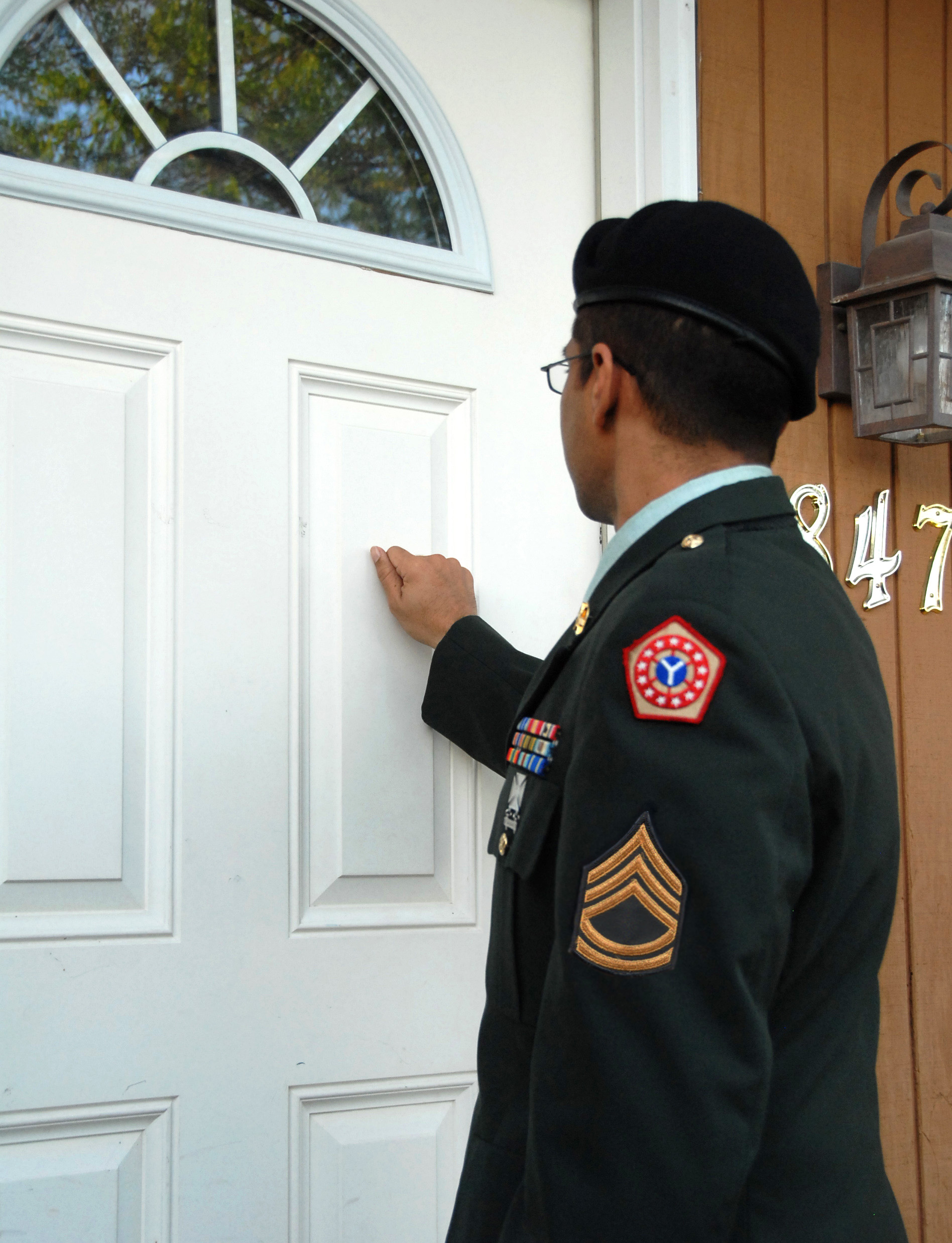 cop with a target on your back as soon as you put on your uniform. As difficult and painful as it is to have a doctor bring us bad news about ourselves or a loved one, what must it be like to be the bearer of that kind of news – over and over again? Or the ER nurse or doctor who fights with everything they have to save a life and then have to call it and admit defeat? Or even the mundane – what must it be like to be a hard-working, loyal employee who never gets the promotion or the atta-boy for a job well done? cop with a target on your back as soon as you put on your uniform. As difficult and painful as it is to have a doctor bring us bad news about ourselves or a loved one, what must it be like to be the bearer of that kind of news – over and over again? Or the ER nurse or doctor who fights with everything they have to save a life and then have to call it and admit defeat? Or even the mundane – what must it be like to be a hard-working, loyal employee who never gets the promotion or the atta-boy for a job well done?
XX
Writers do a lot of people watching. We see the strain on the faces of those who work in difficult jobs, or the soldiers, dressed in  their formal uniforms to tell a family member their loved one is never coming home again. We watch with appreciation the amazing patience of an airline clerk being screamed at by irate travelers over a delayed plane. We watch a harried mother coping with a tantrum in the middle of a grocery store, or a father consoling his son after he struck out with the bases loaded, and we learn a lot about people that way. People who handle things differently than we might. It changes us and our appreciation for others and the gifts they bring to the world. their formal uniforms to tell a family member their loved one is never coming home again. We watch with appreciation the amazing patience of an airline clerk being screamed at by irate travelers over a delayed plane. We watch a harried mother coping with a tantrum in the middle of a grocery store, or a father consoling his son after he struck out with the bases loaded, and we learn a lot about people that way. People who handle things differently than we might. It changes us and our appreciation for others and the gifts they bring to the world.
XX
 I’m not the sort of person who has ever spent a lot of time soul searching my strengths and weaknesses or laboring over my failings, but every now and then I see bits of myself in my characters. Usually less pleasant bits of myself and I’m shocked. OMG – That’s me! And that sudden realization has often forced me to change – to become someone I like a whole lot better. So, with my wise friend Harvey’s advice in my head, I have refused to start dying, which means I must continue to grow and my writing has been a part of that growing and changing. I pray God it will continue to be a part of me until the day I leave this earthly self for something even better. I’m not the sort of person who has ever spent a lot of time soul searching my strengths and weaknesses or laboring over my failings, but every now and then I see bits of myself in my characters. Usually less pleasant bits of myself and I’m shocked. OMG – That’s me! And that sudden realization has often forced me to change – to become someone I like a whole lot better. So, with my wise friend Harvey’s advice in my head, I have refused to start dying, which means I must continue to grow and my writing has been a part of that growing and changing. I pray God it will continue to be a part of me until the day I leave this earthly self for something even better.
XX
 Hop on over and see how these other authors view how writing has changed them: Hop on over and see how these other authors view how writing has changed them:
Anne Stenhouse
Marci Baun
Diane Bator
Connie Vines
Dr. Bob Rich
Fiona McGier
Judith Copek
Helena Fairfax
Beverley Bateman
Rhobin L Courtright
Saturday, April 17 2021
The topic for this month's Round Robin Blog Hop is: How do you choose your characters' names? Are there any you avoid?)
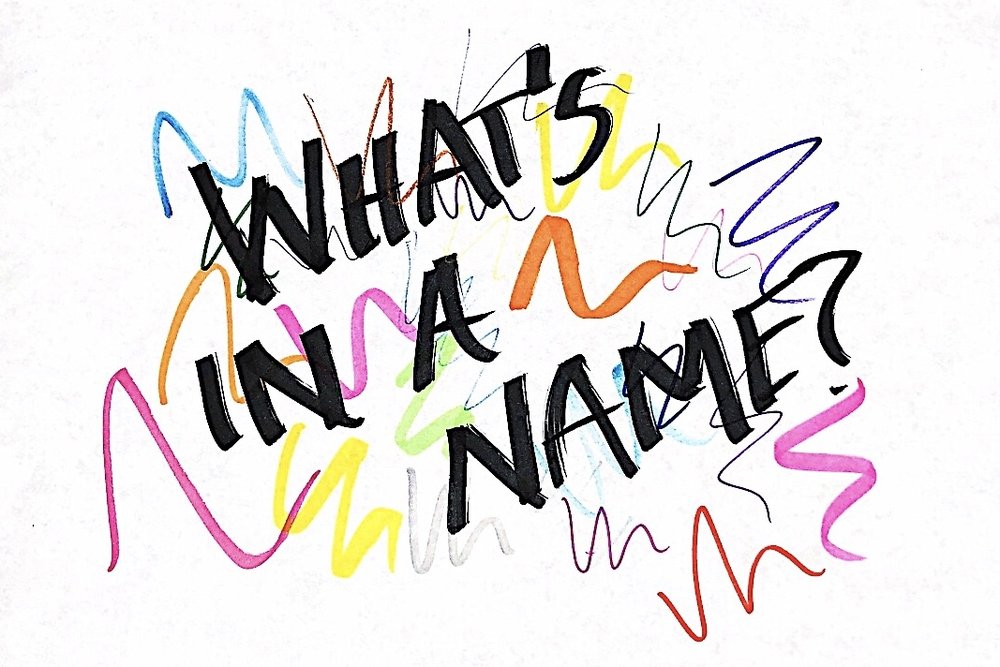 Character naming is one of my favorite parts of creating a new story world and most of the time I spend a lot of thought on it, especially for my main characters. The choice of a name is part of creating the character itself because it needs to fit. It needs to sound pleasant and memorable and it needs to fit the era, time, place, social status, ethnicity and personality. Most of all, it needs to plant an indelible image of a character in your reader’s mind. One he cannot turn his back on. A character he can care about, cheer for and cry for, laugh with and triumph with. You only have one chance to make a first impression whether you’re going for a job interview, a blind date or creating a new character. Your character’s name is the first thing the reader knows about your character. Even before they open the book, your protagonist’s name is on the back cover and in the blurb. MAKE IT COUNT! Character naming is one of my favorite parts of creating a new story world and most of the time I spend a lot of thought on it, especially for my main characters. The choice of a name is part of creating the character itself because it needs to fit. It needs to sound pleasant and memorable and it needs to fit the era, time, place, social status, ethnicity and personality. Most of all, it needs to plant an indelible image of a character in your reader’s mind. One he cannot turn his back on. A character he can care about, cheer for and cry for, laugh with and triumph with. You only have one chance to make a first impression whether you’re going for a job interview, a blind date or creating a new character. Your character’s name is the first thing the reader knows about your character. Even before they open the book, your protagonist’s name is on the back cover and in the blurb. MAKE IT COUNT!
XX
I have a baby naming book on my shelf next to Sherrilyn Kenyon’s Character naming sourcebook that includes names listed by ethnic or heritage backgrounds, and another book listing all the surnames found in the US that tells me where those names originated. The books include meanings and historical use, pet or nicknames. There are online baby name lists and there is also a site listing 100 most popular names in any given year to get a historical perspective.
XX
 For my heroes and heroines, whose personal lives I’ll delve into beyond just the plot of the story, I’m careful to pick names that have nicknames that sound just as well with the surname as the given name does because sooner or later someone in your story will be using a nickname. Mom or dad might call their child Cameron or Margaret or Alexander for their offspring’s entire life, but siblings, schoolmates, co-workers, lovers and friends will find ways to shorten it. My oldest daughter was named Roberta after her dad’s childhood friend. She’s been Bobbi all her life. My second daughter, Rebecca was Becky growing up. So when daughter number three came along I named her Lori thinking that no one would ever shorten it. Hah! That joke was on me. Her gymnastics coach called her Lor. Thus, for my story characters, I am careful to choose a name that has a nickname that I like, that fits the character, the story and the era. For my heroes and heroines, whose personal lives I’ll delve into beyond just the plot of the story, I’m careful to pick names that have nicknames that sound just as well with the surname as the given name does because sooner or later someone in your story will be using a nickname. Mom or dad might call their child Cameron or Margaret or Alexander for their offspring’s entire life, but siblings, schoolmates, co-workers, lovers and friends will find ways to shorten it. My oldest daughter was named Roberta after her dad’s childhood friend. She’s been Bobbi all her life. My second daughter, Rebecca was Becky growing up. So when daughter number three came along I named her Lori thinking that no one would ever shorten it. Hah! That joke was on me. Her gymnastics coach called her Lor. Thus, for my story characters, I am careful to choose a name that has a nickname that I like, that fits the character, the story and the era.
XX
 I also pay attention to ethnicity. It’s not that a blue-eyed, blond can’t be named Jahzara or Diego, but the reader will unconsciously see something very different when they say the name in their mind, just as Sven or Fiona would be unlikely to have dark swarthy features. Unless this confusion is what you are aiming for. The same goes for sex. You can name a girl Stevie, but make sure that masculine nickname fits the personality you are going to endow her with. In my mystery series, my heroine is named Jessalyn Quinn. Her dad called her Jessie-girl, but mom and her uptight ex-husband always call her by her full name so when she decided to become a cop, pursuing a (female deputy) career both mom and the ex disapproved, my heroine decided to call herself Jesse. It fits the personality I have given her, the I also pay attention to ethnicity. It’s not that a blue-eyed, blond can’t be named Jahzara or Diego, but the reader will unconsciously see something very different when they say the name in their mind, just as Sven or Fiona would be unlikely to have dark swarthy features. Unless this confusion is what you are aiming for. The same goes for sex. You can name a girl Stevie, but make sure that masculine nickname fits the personality you are going to endow her with. In my mystery series, my heroine is named Jessalyn Quinn. Her dad called her Jessie-girl, but mom and her uptight ex-husband always call her by her full name so when she decided to become a cop, pursuing a (female deputy) career both mom and the ex disapproved, my heroine decided to call herself Jesse. It fits the personality I have given her, the 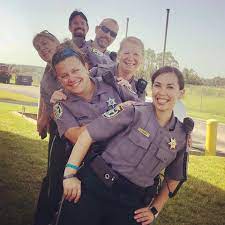 determination she displays to become her own person post-divorce and the reputation she gained for herself early on in the world of law enforcement. She’s a sexy, diminutive red-head who managed to subdue three far larger thieves in a convenience store hold-up when she was barely off probation, so when a new deputy meets her for the first time, his reaction is a double take followed by the comment, “You’re that Jesse Quinn?” My original choice was Jack, but then I realized there were three female law enforcement characters named Jack on popular TV series, so instead she became Jessalyn and Jesse instead of Jacqueline and Jack. Her red hair and feisty personality goes well with the Irish heritage suggested by Quinn. determination she displays to become her own person post-divorce and the reputation she gained for herself early on in the world of law enforcement. She’s a sexy, diminutive red-head who managed to subdue three far larger thieves in a convenience store hold-up when she was barely off probation, so when a new deputy meets her for the first time, his reaction is a double take followed by the comment, “You’re that Jesse Quinn?” My original choice was Jack, but then I realized there were three female law enforcement characters named Jack on popular TV series, so instead she became Jessalyn and Jesse instead of Jacqueline and Jack. Her red hair and feisty personality goes well with the Irish heritage suggested by Quinn.
XX
Another consideration is what era or time have you set your story. Is it in the past when many of the names we are familiar with today were either unheard of or uncommon. In Gone with the Wind Ashley is a man. During that same time period Evelyn was also a masculine name so you wouldn’t want to name a female character Ashley or Evelyn in the 1800s, just as you wouldn’t choose Milika or Tayshaun in Regency England high society, or even in the black communities of the American south during that same time period. If your story is set in the US during the last 100 years, you can google most popular names in Social Security records to find what was and was not common at the time. Google has become a great resource for finding appropriate names for any ancestry or ethnicity in any era, country, or social status.
XX
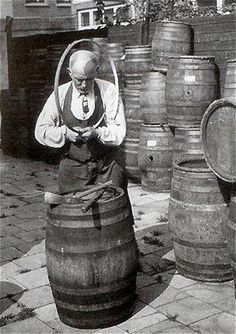 Another note on historical names is the meaning of some/many surnames. Today you hear about a man named Cooper and you might think actor or soldier, but in ages past Cooper meant someone who makes barrels. Smith, Taylor, Wainright (Wagon maker) and dozens of others began to be used when surnames first became a thing. Don’t forget there was a time when surnames were not used at all. And in some societies, the surname was simply your father’s or mother’s name added to your own, as in Elias John, who was Elias the son of John. Some surnames were place names: Hill, Ford, Rivers etc, or descriptive like Cameron which means hooked nose in Another note on historical names is the meaning of some/many surnames. Today you hear about a man named Cooper and you might think actor or soldier, but in ages past Cooper meant someone who makes barrels. Smith, Taylor, Wainright (Wagon maker) and dozens of others began to be used when surnames first became a thing. Don’t forget there was a time when surnames were not used at all. And in some societies, the surname was simply your father’s or mother’s name added to your own, as in Elias John, who was Elias the son of John. Some surnames were place names: Hill, Ford, Rivers etc, or descriptive like Cameron which means hooked nose in 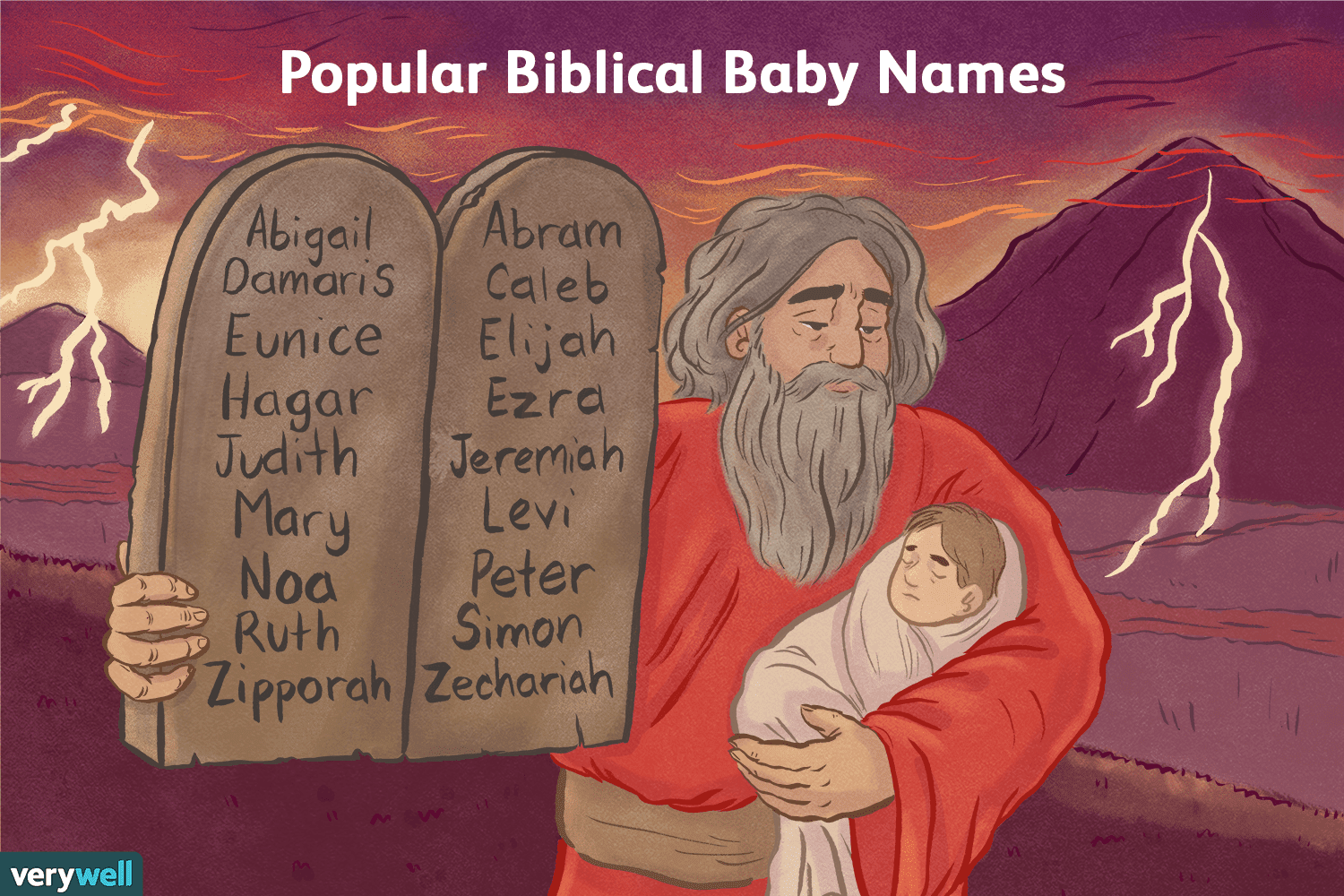 Scotland. Many names have meanings that we more or less ignore today, like Alexander which means protector, or Gabrielle – God’s Servant. And then there is always the Bible from which a huge portion of the names we hear every day originated either in their current form or an earlier spelling. Another thing to consider in historical settings would be social standing. Billy Bob would not be a Harvard professor and Montgomery equally unlikely for a dirt farmer in Iowa. Scotland. Many names have meanings that we more or less ignore today, like Alexander which means protector, or Gabrielle – God’s Servant. And then there is always the Bible from which a huge portion of the names we hear every day originated either in their current form or an earlier spelling. Another thing to consider in historical settings would be social standing. Billy Bob would not be a Harvard professor and Montgomery equally unlikely for a dirt farmer in Iowa.
XX
 There are general rules to at least keep in mind when naming your characters. I’ve heard it mentioned in several places not to use the same first letter too often as Keith, Kevin and Ken can confuse the reader. Even if you have two sisters, who happen to be twins, using Sheila and Sasha could become a brain game for the reader to recall which is which. Best-selling author Stuart Woods, for reasons I’ll never understand has a protagonist named Stone Barrington, which is fine, until he falls for a beautiful woman named Arrington Carrington. I hadn’t read far into that book before wanting to throw up. I have no idea why this seemed like a good choice for the woman’s name. There are general rules to at least keep in mind when naming your characters. I’ve heard it mentioned in several places not to use the same first letter too often as Keith, Kevin and Ken can confuse the reader. Even if you have two sisters, who happen to be twins, using Sheila and Sasha could become a brain game for the reader to recall which is which. Best-selling author Stuart Woods, for reasons I’ll never understand has a protagonist named Stone Barrington, which is fine, until he falls for a beautiful woman named Arrington Carrington. I hadn’t read far into that book before wanting to throw up. I have no idea why this seemed like a good choice for the woman’s name.
XX
Naming a character should include thinking about the impression you want this character to make. Claud Bumblefoot would not inspire nearly as much confidence as James Bond or Sherlock Holmes. If you want a softer side for a top cop, ace flyer, super spy or sleuth, avoid the single hard syllable first name. No loss in stature with names like William or Lawrence. You want a take-charge woman, consider Sidney, Dallas or Elizabeth. Pansy might teach kindergarten and Brandy mixes drinks in a bar.
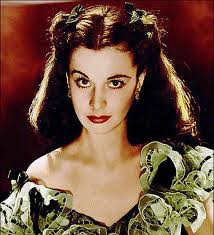  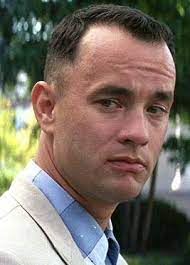 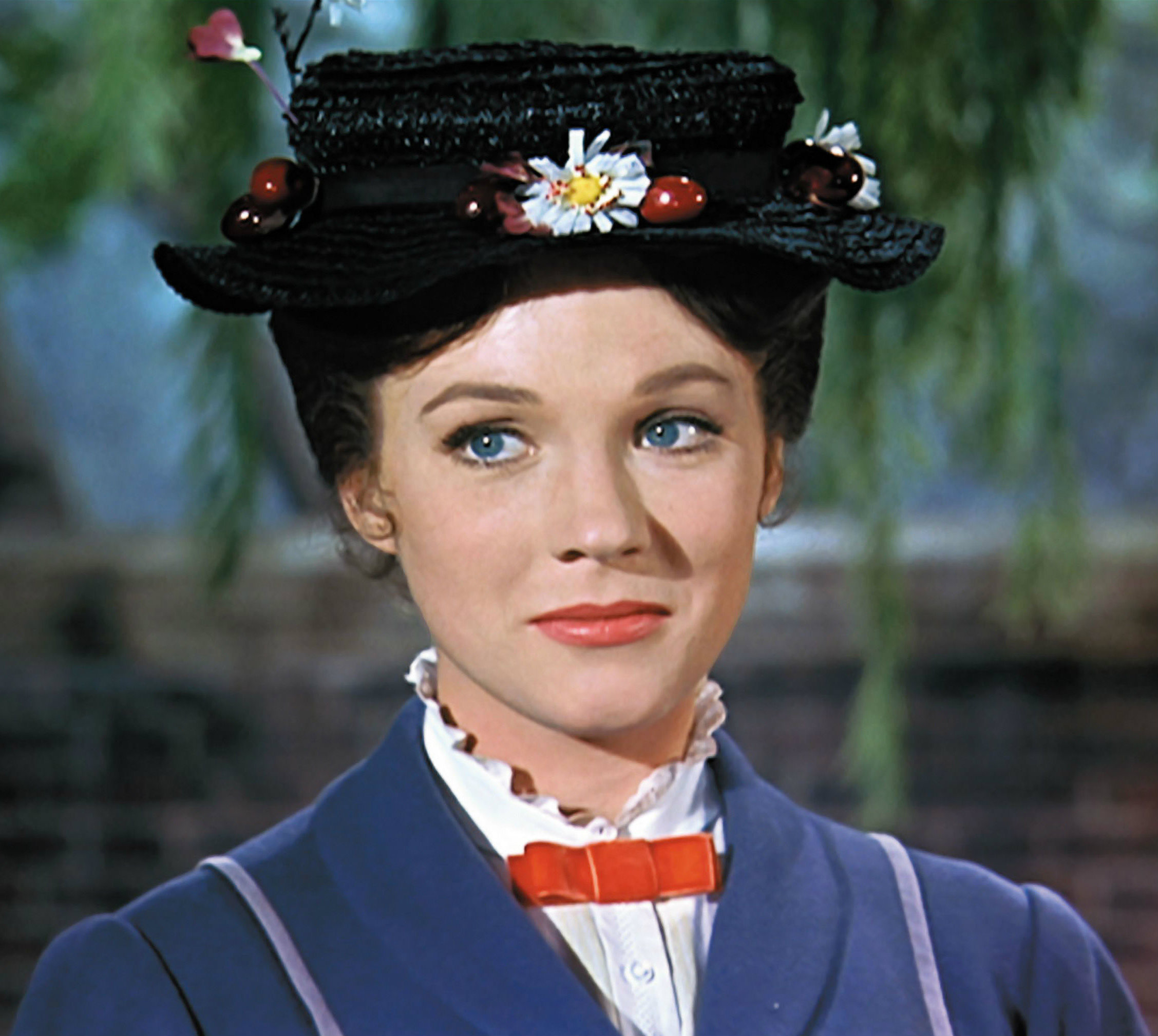
Think about the characters you’ve met over the years in books. What kind of impression does their name leave in your mind? Peter Pan, Jane Eyre, Heidi, Darth Vader, Rocky Balboa, Scarlet O’Hara, Forrest Gump, Charlie Brown, Mary Poppins, or Buffy Summers. Admittedly, the personality and achievements attributed to each are part of that impression, but what about when you first met them, before you got deeply into the story? Did the choice of name tip you off? Consider - Jack Reacher, no middle initial. Does that name suggest anything other than a no-nonsense man on a mission?
XX
To Summarize:
- Capture the personality
- Consider the heritage, ethnicity, social standing or era
- Make the first and last name flow off the tongue with ease
- Vary the names of your characters
- Keep the genre in mind
- Are you going to use nicknames and if so, make them fit the personality
- If your name breaks the rules, let the reader know the reason
XX
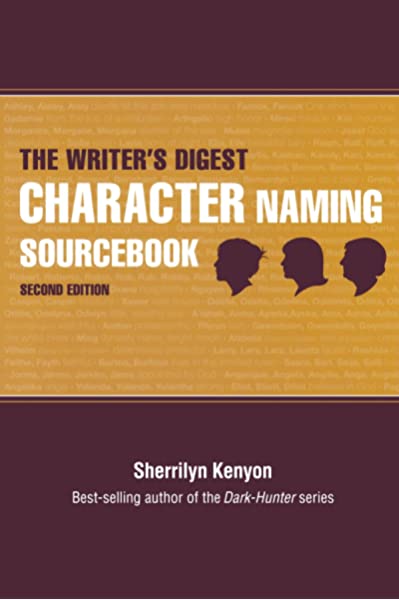 I confess, I spend far more time on picking out just the right names for my characters than many authors and have been known to change a name in the middle of writing when the name just doesn’t feel right as the character develops and grows. I also confess that there are a few characters that have popped onto the page, named themselves and proceeded show me how important they are to my story. Lucas Trevlyn in Keeping his Promise and Zoe in Falling for Zoe, among others, came into my head already christened and ready to join the action. I confess, I spend far more time on picking out just the right names for my characters than many authors and have been known to change a name in the middle of writing when the name just doesn’t feel right as the character develops and grows. I also confess that there are a few characters that have popped onto the page, named themselves and proceeded show me how important they are to my story. Lucas Trevlyn in Keeping his Promise and Zoe in Falling for Zoe, among others, came into my head already christened and ready to join the action.
XX
Among many books on the topic, the one I always recommend to new writers (and have loaned out many times) is The Writer’s Digest Character Naming Sourcebook by Sherrilyn Kenyon. But why not hop on over now and see how these other authors go about naming their characters.

Anne Stenhouse
Victoria Chatham
Beverley Bateman
Helena Fairfax
Dr. Bob Rich
Marci Baun
Judith Copek
Connie Vines
Fiona McGier
Rhobin L Courtright
Saturday, March 20 2021
 Welcome to the Round Robin Blog Hop for March 2021 - How do you develop tension in your writing? Welcome to the Round Robin Blog Hop for March 2021 - How do you develop tension in your writing?
XX
Although the Hallmark channel movies are immensely popular, how many of you have snored through one? I generally turn them on at Christmas time as company while I’m busy with holiday projects, but unless I have something else occupying my hands and head, my mind wanders from the movie far too easily. Why? Because of the lack of tension. Yes, they are romances and yes, there is some inner conflict – usually some past romantic break-up – but the rest of the story is all fluff. But if I switch over and watch, say, NCIS LA, the tension cranks up frequently, each time higher, to a crescendo at the climax and my brain, whatever I’m doing, is  yanked back to the action on the screen. yanked back to the action on the screen.
XX
This is called tension and if you want your readers to stay glued to your book, you need to follow the NCIS LA model rather than the Hallmark one. You want your readers to be forcing their eyelids to stay up late at night because they simply HAVE to know what’s going to happen next. Years ago, when I first got back to writing after my kids were grown and I had an empty nest, I joined a writers group and the speaker at the very first  meeting I attended was Tess Gerritson, best selling author of medical thrillers and creator of the Rizzoli and Isles series (in books and on tv.) One comment in her presentation struck me at the time and has stayed with me ever since. meeting I attended was Tess Gerritson, best selling author of medical thrillers and creator of the Rizzoli and Isles series (in books and on tv.) One comment in her presentation struck me at the time and has stayed with me ever since.
XX
“If things are going too well for your heroine, throw a new fence in her way.” She went on to elaborate, but I’m sure you get the picture. Your hero is about to win the race, so stick out your foot and trip him. That is one way to create tension, especially when things are beginning to sag.
XX
Right up front here I would like to recommend an excellent book written by Debra Dixon, author, editor and publisher  with the title. G.M.C. Goal Motivation & Conflict – the building blocks of good fiction. An excellent reference for all beginners and something that lives in any seasoned author’s soul. All your main characters and even some of your minor ones will have a goal, motivation and something that gets in the way of achieving it – the conflict, and that creates the tension. In Suspense and thrillers that conflict is right up front, looming large over the hero’s life and goals. In a romance, or in women’s fiction, it might be more subtle, but it’s there. Every good character needs something to strive for. They need a believable reason to want it. And something must stand in their way, challenging them to grow, and overcome. with the title. G.M.C. Goal Motivation & Conflict – the building blocks of good fiction. An excellent reference for all beginners and something that lives in any seasoned author’s soul. All your main characters and even some of your minor ones will have a goal, motivation and something that gets in the way of achieving it – the conflict, and that creates the tension. In Suspense and thrillers that conflict is right up front, looming large over the hero’s life and goals. In a romance, or in women’s fiction, it might be more subtle, but it’s there. Every good character needs something to strive for. They need a believable reason to want it. And something must stand in their way, challenging them to grow, and overcome.
XX
I began writing romance and that formula found in Ms. Dixon’s book works for both the hero and the heroine, preferably with both inner and outer conflicts in direct opposition to the other’s issues. For instance, the outer conflict might be that she’s a city girl and he’s a cowboy who can’t imagine living anywhere but on the wide open range. Or your heroine  is the owner of a small bookstore that’s been in the family for generations and the hero is the front man for a company trying to buy out all the business owners to put up some big modern condo complex. Your hero is desperate for a loan and your heroine is a responsible bank loan officer who sees him as a poor risk. In most fiction, but especially romance, there is an inner conflict as well. In romance, it’s something that makes falling in love with that particular person a bad idea. Sometimes it’s a history – he broke her heart in high school and she’s not about to give him a second chance. She’s a wall-flower and he’s a jock and it seems like they have nothing in common. Or maybe everyone she has ever loved in her life has met with an unfortunate end and she’s afraid to love anyone lest she doom them to a similar fate. Or his mother has been a liar and a cheat for as long as he can remember and he doesn’t trust women. That’s what creates tension in a romance. Two people, drawn to each other physically and mentally, but with some inner turmoil that keeps them from letting it just happen. is the owner of a small bookstore that’s been in the family for generations and the hero is the front man for a company trying to buy out all the business owners to put up some big modern condo complex. Your hero is desperate for a loan and your heroine is a responsible bank loan officer who sees him as a poor risk. In most fiction, but especially romance, there is an inner conflict as well. In romance, it’s something that makes falling in love with that particular person a bad idea. Sometimes it’s a history – he broke her heart in high school and she’s not about to give him a second chance. She’s a wall-flower and he’s a jock and it seems like they have nothing in common. Or maybe everyone she has ever loved in her life has met with an unfortunate end and she’s afraid to love anyone lest she doom them to a similar fate. Or his mother has been a liar and a cheat for as long as he can remember and he doesn’t trust women. That’s what creates tension in a romance. Two people, drawn to each other physically and mentally, but with some inner turmoil that keeps them from letting it just happen.
XX
 I’ve often been told my romances could be main stream or women’s fiction, though because I write what I see as real life. No one lives in a bubble where it’s just the hero and heroine and their relationship. We have kids and inconvenient relatives, co-workers, bosses, landlords, neighbors, dogs, cats, mortgages, cars that break down. The list is endless and I throw a lot of that conflict at my characters. In Falling for Zoe, my hero is coping with a mother with Alzheimer’s, a teen age daughter and 5 year old twins. The last thing he needs is another woman in his life. But that’s how love sometimes happens, in the midst of life however crazy it is. I’ve often been told my romances could be main stream or women’s fiction, though because I write what I see as real life. No one lives in a bubble where it’s just the hero and heroine and their relationship. We have kids and inconvenient relatives, co-workers, bosses, landlords, neighbors, dogs, cats, mortgages, cars that break down. The list is endless and I throw a lot of that conflict at my characters. In Falling for Zoe, my hero is coping with a mother with Alzheimer’s, a teen age daughter and 5 year old twins. The last thing he needs is another woman in his life. But that’s how love sometimes happens, in the midst of life however crazy it is.
XX
Iain’s Plaid, my time travel is a romance so it ran on inner and outer conflicts for my hero and heroine but added to that was the schism of time. She was thrust without warning into a time two hundred years earlier, which added a whole new layer of tension.
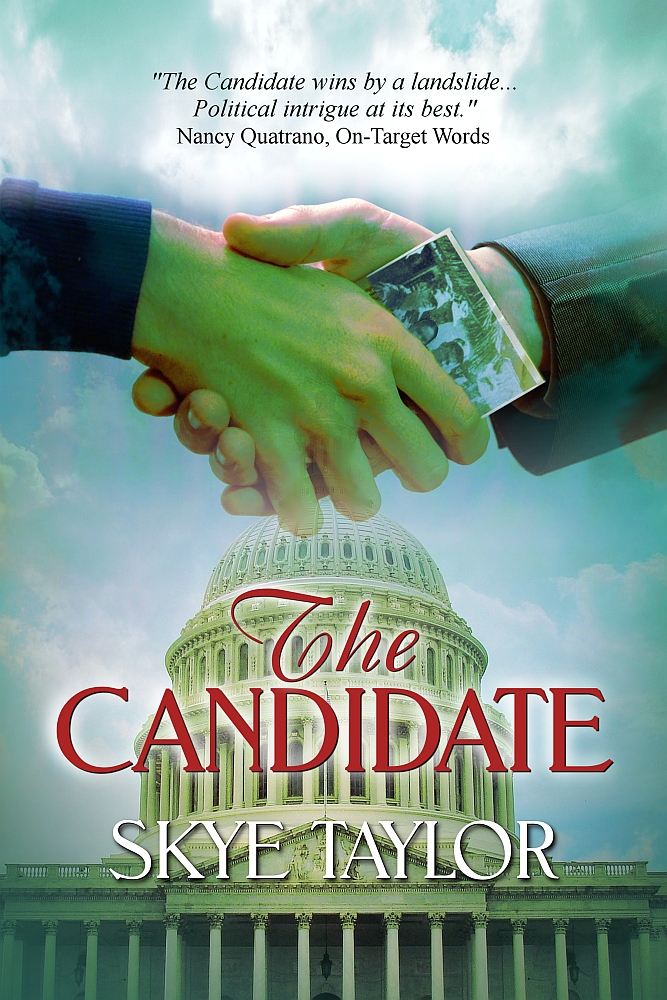 XX XX
The Candidate, one the first books I wrote, my hero is running for president against two other candidates. It’s a close race and any of the three have a shot at winning. The obvious and starkly different campaign promises and the lengths each man will go to win offers much of the tension, but the secrets each hides, that could be their undoing cranks that up. On the first page, my hero is presented with an unwanted reminder of a past he’s done everything to forget. He struggles with this unleashing of memory and pain while trying to keep his campaign on track. When I initially wrote that book, it was all his story, told from his point of view and it was mostly about his personal odyssey, and trying to stay focused on the campaign in the midst of that turmoil. But an editor who liked my premise suggested there was not enough tension. After considering my options, I broadened it by looking into all three campaigns, two from the candidates’ POVs and one from the campaign manager’s. Then I added POV opportunities for two other important characters whose very presence added trouble for my hero. Letting the reader see other points of view and what the hero is up against that he is not aware of added that tension my editor was looking for. The way you’d feel if you saw someone slip a rufie into a woman’s drink when she wasn’t looking and you want to shout “Don’t drink it!” but she can’t hear you as she picks up the glass and brings it to her lips.
XX
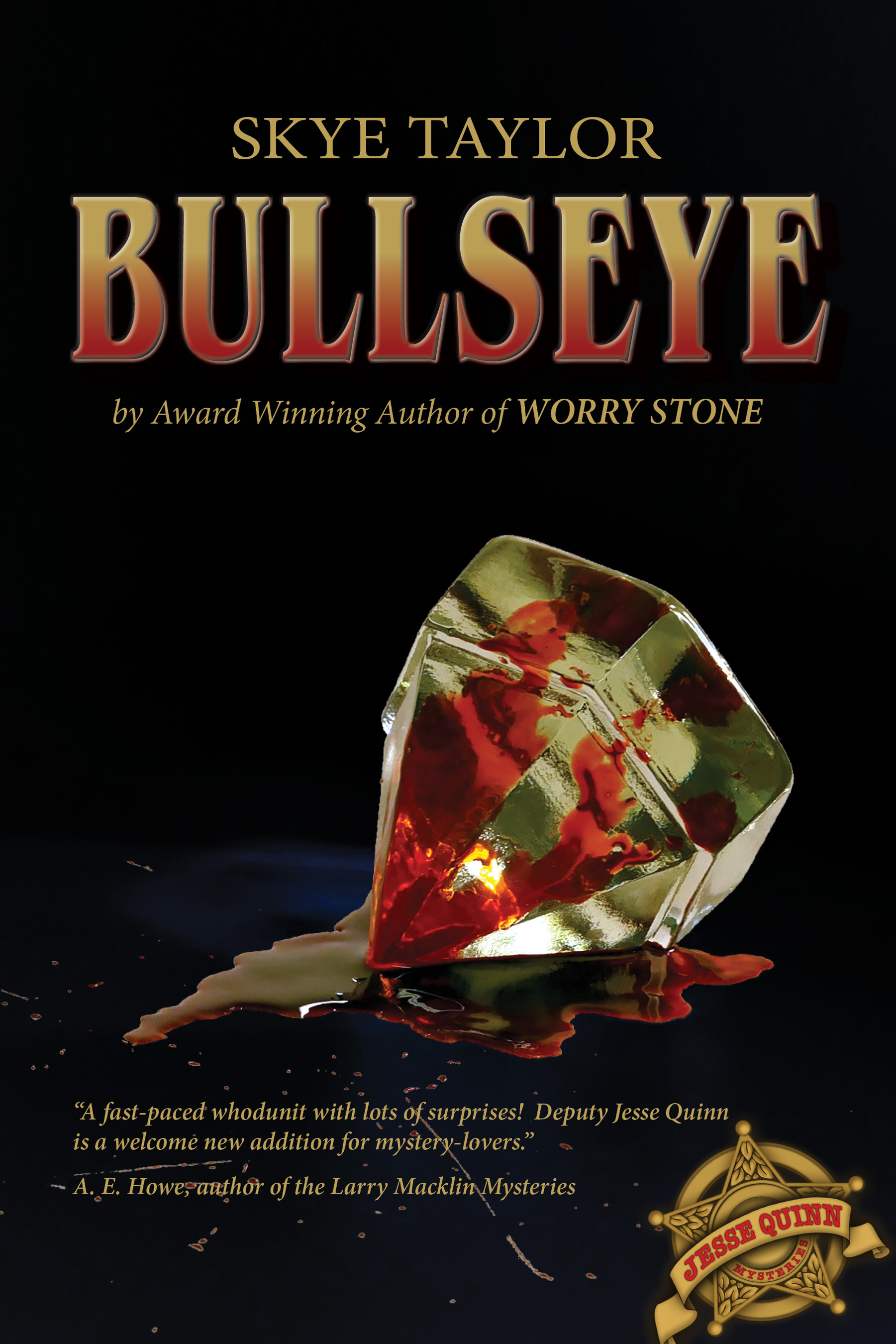 When I began writing mysteries I discovered a whole new challenge to keeping the tension going. I’m writing what they call police procedurals (as opposed to cozy mysteries or suspense) and in spite of what you see in movies and on TV, police work, like they say of soldiering, is 90% tedium and 10% terror. Police work also involves huge amounts of paperwork and reports. Some interviews of suspects can be tension filled, but more often they are just question after question, a detective’s effort to wear the suspect down until they spill something they meant to keep to themselves. None of which makes for interesting reading or adds much tension to the story. Another best-selling author, C. Hope Clark, made a comment when critiquing the first few chapters of my first mystery that I needed to have another dead body show up. When I began writing mysteries I discovered a whole new challenge to keeping the tension going. I’m writing what they call police procedurals (as opposed to cozy mysteries or suspense) and in spite of what you see in movies and on TV, police work, like they say of soldiering, is 90% tedium and 10% terror. Police work also involves huge amounts of paperwork and reports. Some interviews of suspects can be tension filled, but more often they are just question after question, a detective’s effort to wear the suspect down until they spill something they meant to keep to themselves. None of which makes for interesting reading or adds much tension to the story. Another best-selling author, C. Hope Clark, made a comment when critiquing the first few chapters of my first mystery that I needed to have another dead body show up.
XX
 But it couldn’t be just any dead body. There had to be a connection and it had to complicate the ongoing investigation. One of my characters is convinced he knows who did it, and my heroine disagreed, but suddenly there is another body – one that is clearly connected, and yet the ME declares the time of death to coincide with the when their hot suspect has an air tight alibi. Now what? Are there two murderers working together? Was the first suspect innocent? Maybe the murders are not connected or perhaps they are a copy-cat? Whatever the cause, it had to disrupt the investigation’s momentum and create tension. But it couldn’t be just any dead body. There had to be a connection and it had to complicate the ongoing investigation. One of my characters is convinced he knows who did it, and my heroine disagreed, but suddenly there is another body – one that is clearly connected, and yet the ME declares the time of death to coincide with the when their hot suspect has an air tight alibi. Now what? Are there two murderers working together? Was the first suspect innocent? Maybe the murders are not connected or perhaps they are a copy-cat? Whatever the cause, it had to disrupt the investigation’s momentum and create tension.
XX
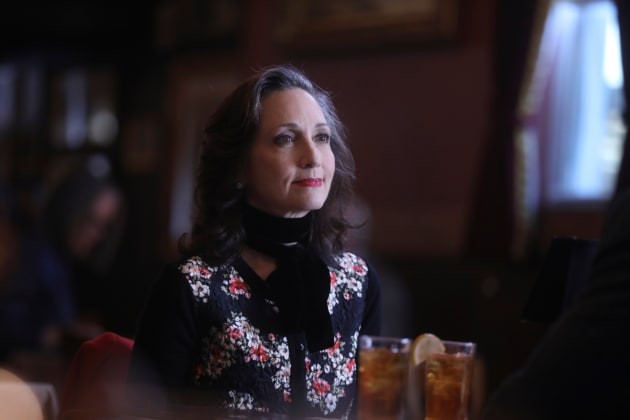 Another way to add tension to a murder mystery is to suddenly have your hero or heroine get too close to figuring things out and acquire a target on their back. Or there is a disagreement with someone in the department, especially a supervisor. Tension is often added by expanding the number of people on the case, bringing in the FBI for instance. If you watch Blue Bloods on TV you will have met the US Marshal who rides roughshod over anything either Danny Reagan or his father, the commissioner, are doing and tensions run high. Or the governor calls in State Police without consulting the NYPD. In one season the mayor appointed a woman to “oversee” the police department in what he called an effort for transparency. All of these conflicting power bases add tension. In another season a psychopathic serial killer got under Danny’s skin and taunted him, ending with a threat to his family. I can’t claim to be nearly as good as the writers for this show, but their example helps me to see places where I can add tension to my stories. Another way to add tension to a murder mystery is to suddenly have your hero or heroine get too close to figuring things out and acquire a target on their back. Or there is a disagreement with someone in the department, especially a supervisor. Tension is often added by expanding the number of people on the case, bringing in the FBI for instance. If you watch Blue Bloods on TV you will have met the US Marshal who rides roughshod over anything either Danny Reagan or his father, the commissioner, are doing and tensions run high. Or the governor calls in State Police without consulting the NYPD. In one season the mayor appointed a woman to “oversee” the police department in what he called an effort for transparency. All of these conflicting power bases add tension. In another season a psychopathic serial killer got under Danny’s skin and taunted him, ending with a threat to his family. I can’t claim to be nearly as good as the writers for this show, but their example helps me to see places where I can add tension to my stories.
XX
I’ve not written suspense or a thriller, medical mayhem or young adult, so perhaps you should check out some of these other authors and see how they create tension in those genres.
XX
Marci Baun
Dr. Bob Rich
Victoria Chatham
Connie Vines
Diane Bator
Rhobin L Courtright
|